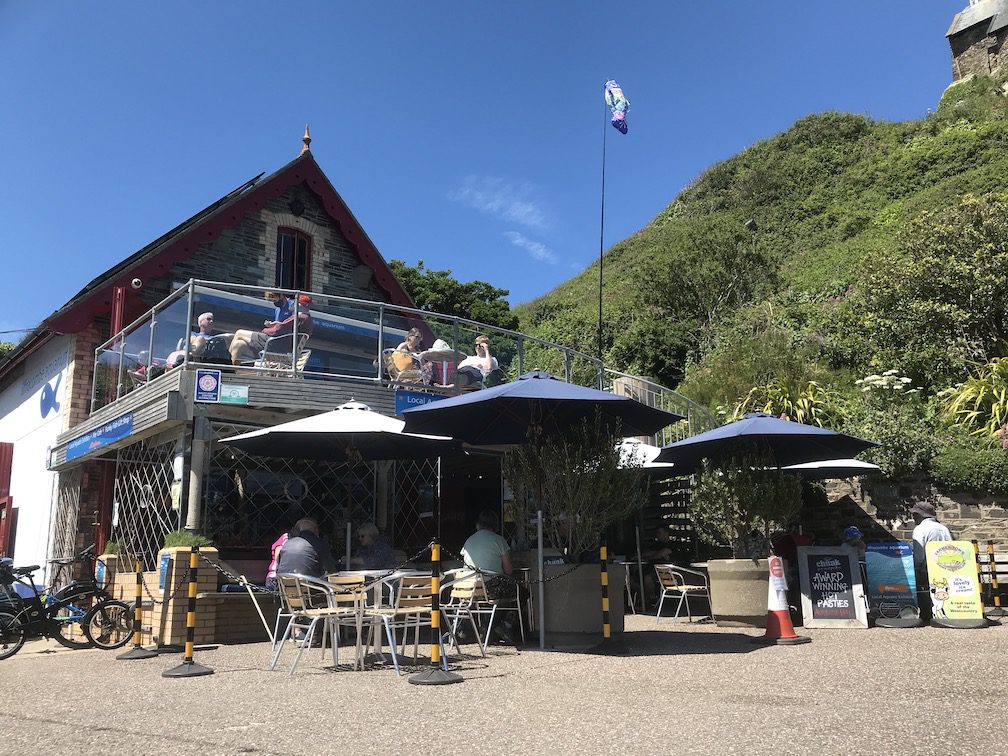Another enjoyable night with Bideford & District Angling Club a pleasure to be a part of the evening. A very good attendance this year with a really positive vibe.



































|
Open Day Venue |
|
Snowbee, Mercator House, 22 Brest Road, Derriford, Plymouth, Devon. PL6 5XP |

https://news.snowbee.co.uk/c/AQj02g4QlqN4GJiR4ZcBILCAshhyjTn_OS2q_PCLp0Ch0HXk8zo_wMqYKgv_F4O88WY0hw
The latest Storm is forecast to hit the region over the weekend and most local competitions have wisely been cancelled. A storm with winds from the North West forecast to reach 90 MPH is very unusual and a RED WARNING is certainly cause for concern. There are those who will say that the Met Office and the media are hyping it up but they cannot win for they were heavily criticised last week when floods hit Wales and residents said they had not been warned. Weather forecasting is still an in-precise science despite all the technology that is in place. Lets hope its not as bad as forecast. Should be some good fishing in the aftermath of the storm.

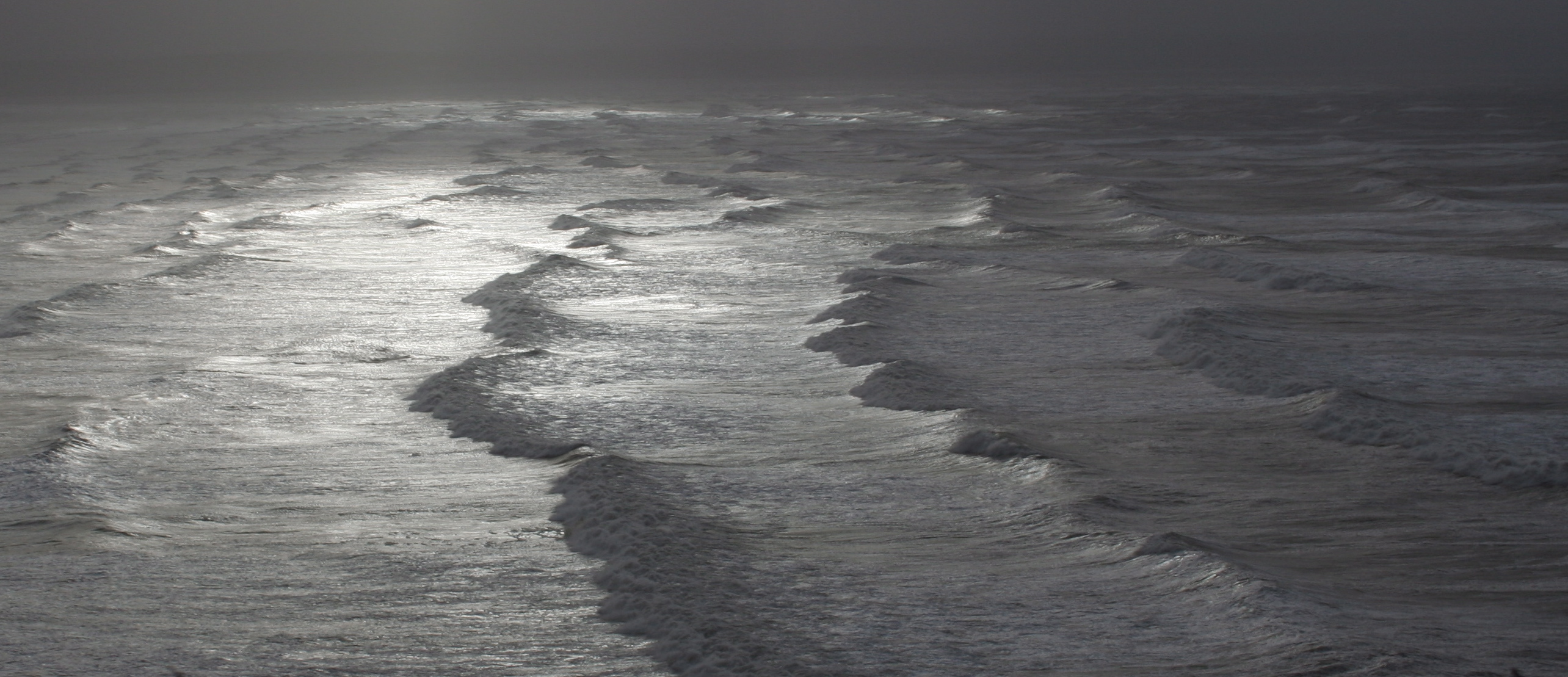


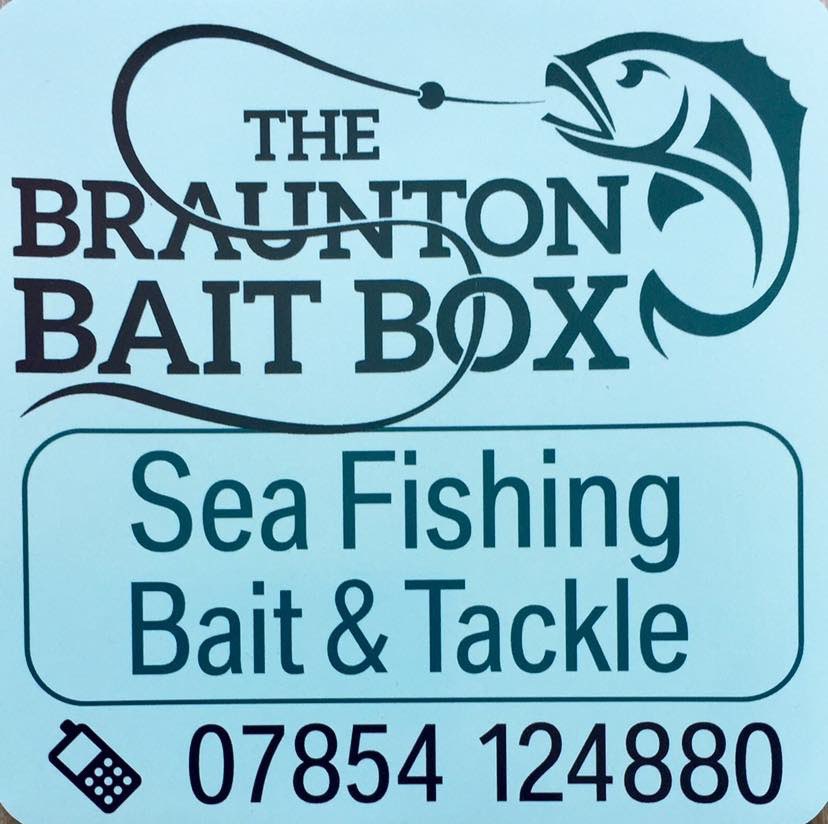
Following on from the very successful Dan Miles Redmore Memorial Competition Triple Hook Club are launching their Flounder Open Schedule for 2024
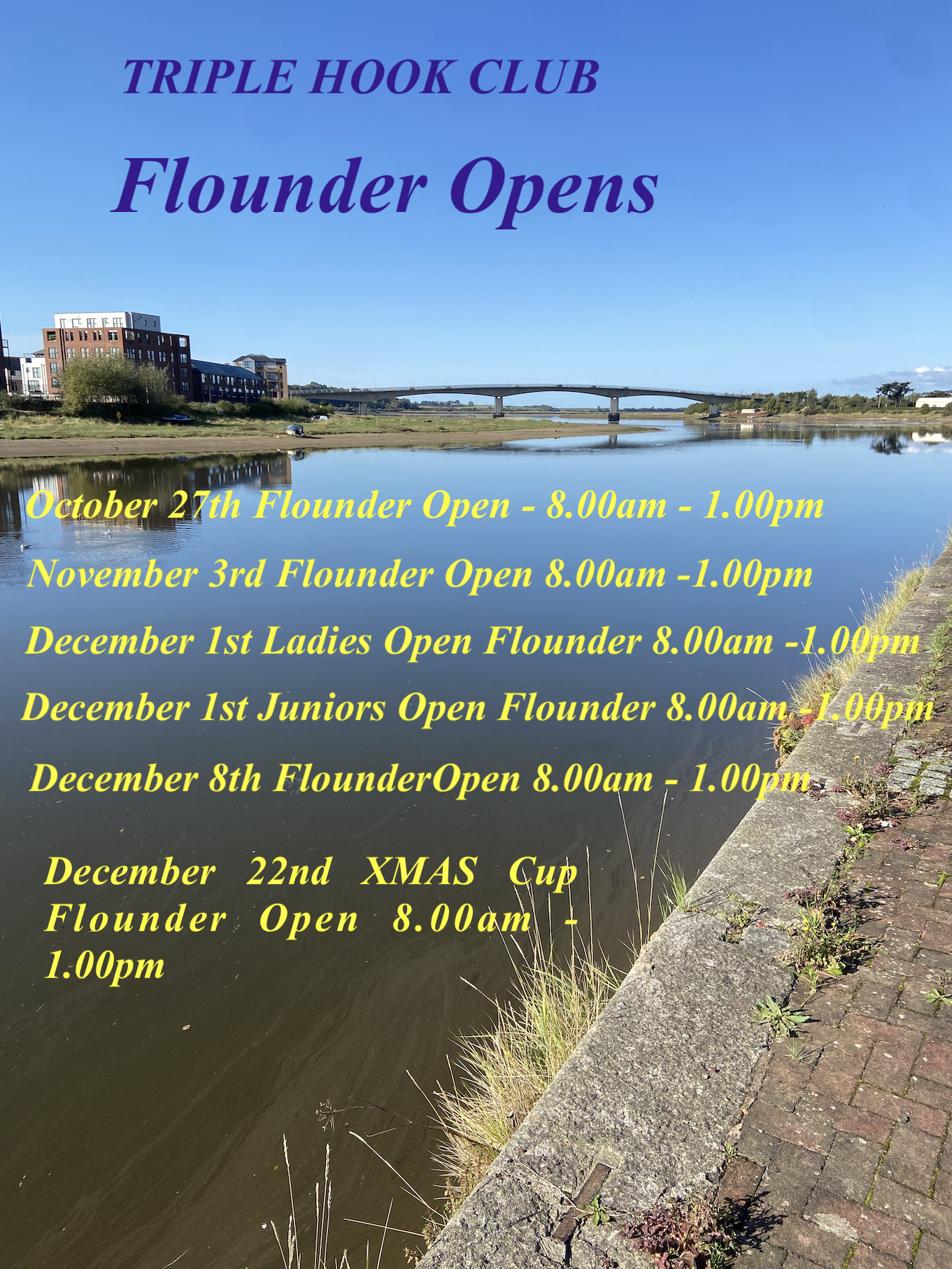



|
|---|
Today’s digital world is fast paced, always on and it’s made our lives better in many ways, but it’s also made us more stressed. Witness the rise of yoga, meditation, wellbeing apps, therapists, mindfulness and such like as an antidote to our deteriorating mental health. According to the British Medical Association, mental health services in England received a record 4.6 million referrals during 2022 (up 22% from 2019), and there simply aren’t enough doctors to match it. YOUR OBJECTIVE ISN’T THE ENDGAME: So how exactly can fly fishing help? Firstly, catching fish isn’t that important. If you wanted to catch a fish, there are more effective ways than fly fishing. These days the majority of fly fishers now practise catch and release, and personally speaking I much prefer the satisfaction of safely releasing a fish than actually catching it. Another American, author Zane Grey, said “if I fished only to capture fish, my fishing trips would have ended long ago”. So if it’s not to catch fish, why do we do it? There is a myriad of reasons here, however in broad terms I think they can all be narrowed down to one simple answer – how it makes you feel.
|
ONE LONG JOURNEY:
One of the things I love about fly fishing is that you never stop learning. You can get familiar with the basics of casting and fishing reasonably quickly, but the art and science of fly fishing takes time to master. Fly fishing provides a lifetime of learning and improving, of challenging yourself, trying different things until you work out what works. And what works one day doesn’t always work the next. Heraclitus, an ancient Greek philosopher from around 500 BC, said “no man ever steps in the same river twice, for it’s not the same river and he’s not the same man”. But that’s the fun of it, the constant learning, the variety, the challenges, pitting your wits against the fish and the conditions. Fly fishing can be as all-consuming as you want it to be. It’s a hobby and passion that can be with you throughout your life, an ever giving partner, an endless source of enjoyment, despite whatever else is going on. It’s one long journey that makes you feel good.


|
MANY SHORT JOURNEYS: A fishing trip can be split into 3 parts: anticipation, enjoyment, recollection. There are two types of anticipation for me. Firstly, the months and weeks leading up to the opening of the trout river season, a time of checking over tackle, replenishing fly boxes and wondering how the river might have changed, what tactics I might use and when. Then there is the giddy anticipation the day before an actual fishing trip, getting your gear packed, keeping an eye on the weather and water conditions, and if you’re fishing with a friend usually a healthy exchange of eager WhatsApp messages full of hope. Then of course there’s the actual enjoyment of the day itself. A great cast to a tricky place, the satisfaction of adapting tactics to outwit an unwilling quarry, watching a fish released, a nice lunch by the riverside, damsels dancing in the air, the flash of a kingfisher swooping past, plucking a blackberry from the brambles that caught your fly when casting, the sounds of the countryside, not thinking about work or life, just being in the moment in a place of beauty. And when it’s over, then there are the happy recollections, not just later that day as you smile thinking back, but also the amazing moments and memories that keep you going through the winter months. Anticipation, enjoyment, recollection. Every time you go fishing. Many short journeys that simply make you feel good.
FISHING AS THERAPY: In 2021 fishing was officially prescribed by the NHS to help people suffering with anxiety and depression. Farlows sister brand Sportfish, which runs the Sportfish Game Fishing Centre with two spring-fed crystal clear trout fishing lakes, is now an approved supplier and partner for the Get Fishing For Wellbeing program from the Angling Trust, the national fishing governing body. Fishing as therapy is nothing new – for decades there have been fly fishing charities supporting military veterans to cope with Post Traumatic Stress Disorder (PTSD) and combat fatigue. A new feature film called Mending the Line starring Brian Cox is now available on Netflix, about an old Vietnam veteran and a young Afghanistan one finding healing for their traumas through fly fishing and friendship.
The BBC’s hugely successful TV show “Mortimer & Whitehouse: Gone Fishing”, now in its 6th series, is all about fishing as therapy. Its origins lie in Paul Whitehouse discovering Bob Mortimer wasn’t going out anymore following his triple heart bypass surgery and inviting him out fishing. Mortimer loved it and later said “I’ve never felt anything like it. There comes a moment when you realise that you’ve said nothing for an hour and a half. I haven’t thought about anything else. I haven’t worried about the past, or future”.
THE SCIENCE BEHIND THE WELLBEING: According to The Royal College of Psychiatrists there are 4 key areas as to why fly fishing is so beneficial for your health:
When fly fishing, you’re concentrating solely on what you’re doing and the beauty of where you’re doing it. For hours, all the pressures of work, home life and the modern world are forgotten. This leads to lower stress levels, and studies show this reduction in cortisol (stress hormone) can have a positive effect for up to 3 weeks. With an opportunity to learn new skills, meet new people in both a sociable setting and have some tranquil time with just yourself in nature, it’s no surprise there’s a new generation using fly fishing as a form of meditation and a means to support their physical and mental wellbeing. Especially given these days neither the kit nor the fishing itself needs to be expensive, and good fly fishing can be found pretty much everywhere. Especially at the Arundell.
|
Birthdays inevitably come around each year reminding of our progress on life’s journey a time to celebrate life, to reflect and perhaps to recalibrate.
My wife Pauline had treated me to a fine leather belt celebrating the wild brown trout of Exmoor from https://www.bordercountrybelts.co.uk
A fine present that oozes quality, craftsmanship with the pleasing fragrance of real leather.

Inspired in part by the belt what better way to spend a birthday than with my wife beside a river that teams with wild trout and the occasional grayling?
Late August is a pleasing time to visit Exmoor with its heather clad rolling hills interspersed with yellow gorse. The roadsides decorated with bright loosestrife in shades of pink. The trees are starting to take on early hues of the coming Autumn, seasons on Exmoor seem to arrive earlier and later than in the lower lands.
We arrived in Dulverton late morning, grabbed a pasty and sausage roll from the deli to enjoy at the water’s edge later. We visited Rothwell and Dunworth bookshop to check out the fishing books of which there are always a good selection. A good old fashioned traditional second hand antiquarian bookshop that it is easy to spend half an hour or so browsing in, so much more aesthetically pleasing than scrolling through the clinically sterile internet. Having been tempted in the bookshop we headed to Lance Nicholson’s to see what beats were available on the https://dulvertonanglingassociation.org.uk/general.php Beats. The Beat I wanted to explore was Old Woman’s the associations latest acquisition and to my delight James told me it was free and promptly wrote my name in the book.
Before heading to the river bank we grabbed a coffee and popped into the Exmoor Society’s Office to learn about their Rivers day on Saturday August 24th. https://www.exmoorsociety.com/individual-event/exmoor-rivers-day
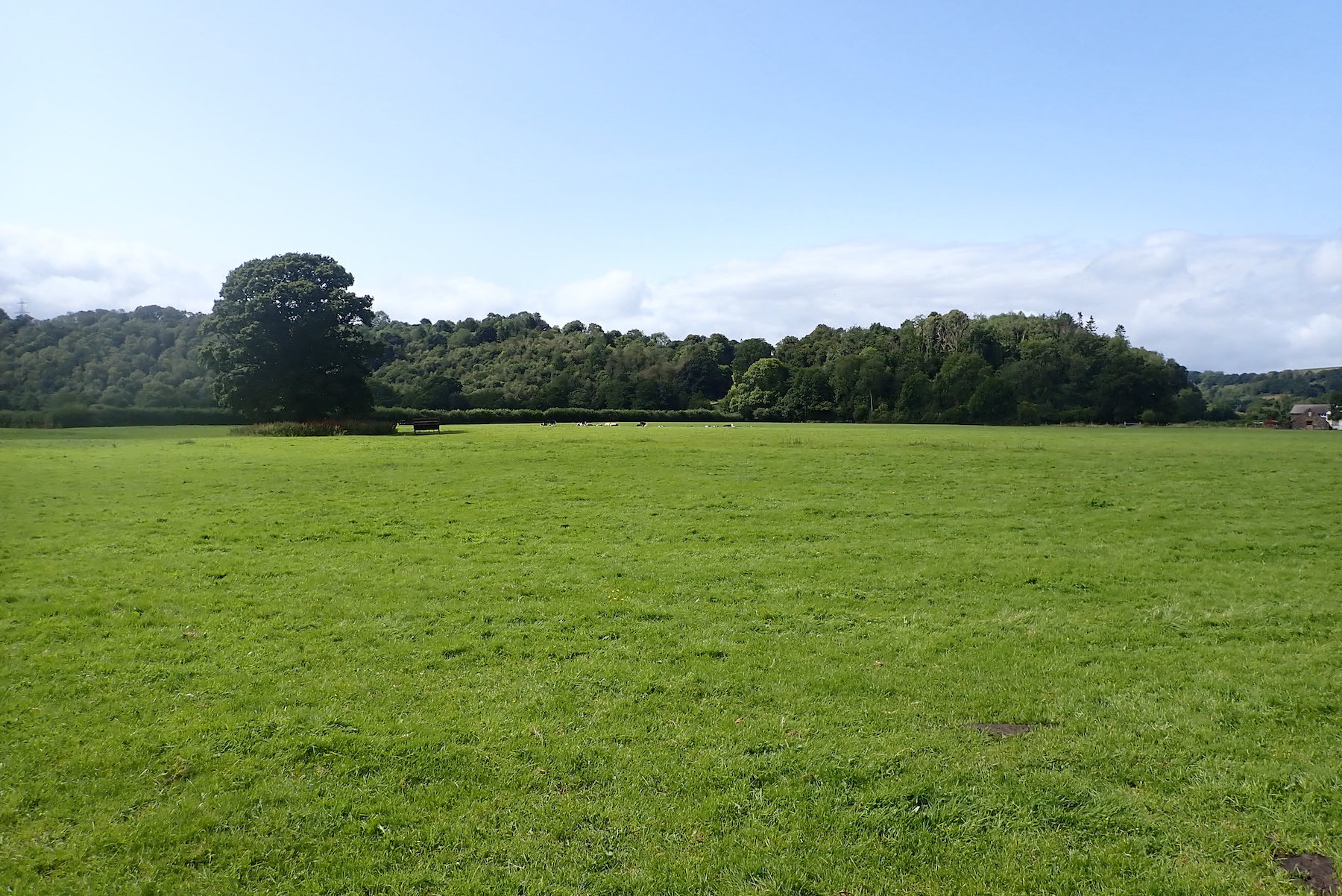
There is always something special about exploring a new water and Old Woman’s Beat oozed a timeless aura from the moment we left the car and strolled into the lush green field that borders the river.
A herd of Friesen cows were grazing at the far end of the field. Old farmhouses were nestled a distance away in the valley, Oak woodland bordered the river with dense oak woods further down the valley.
The River Exe flowed between ancient oaks, at low summer level now peaceful and serene. Swallows swooped over the summer landscape, sunshine broke through the high white cloud and a strong breeze ruffled the leaves that had now taken on the deep darker green of late summer.
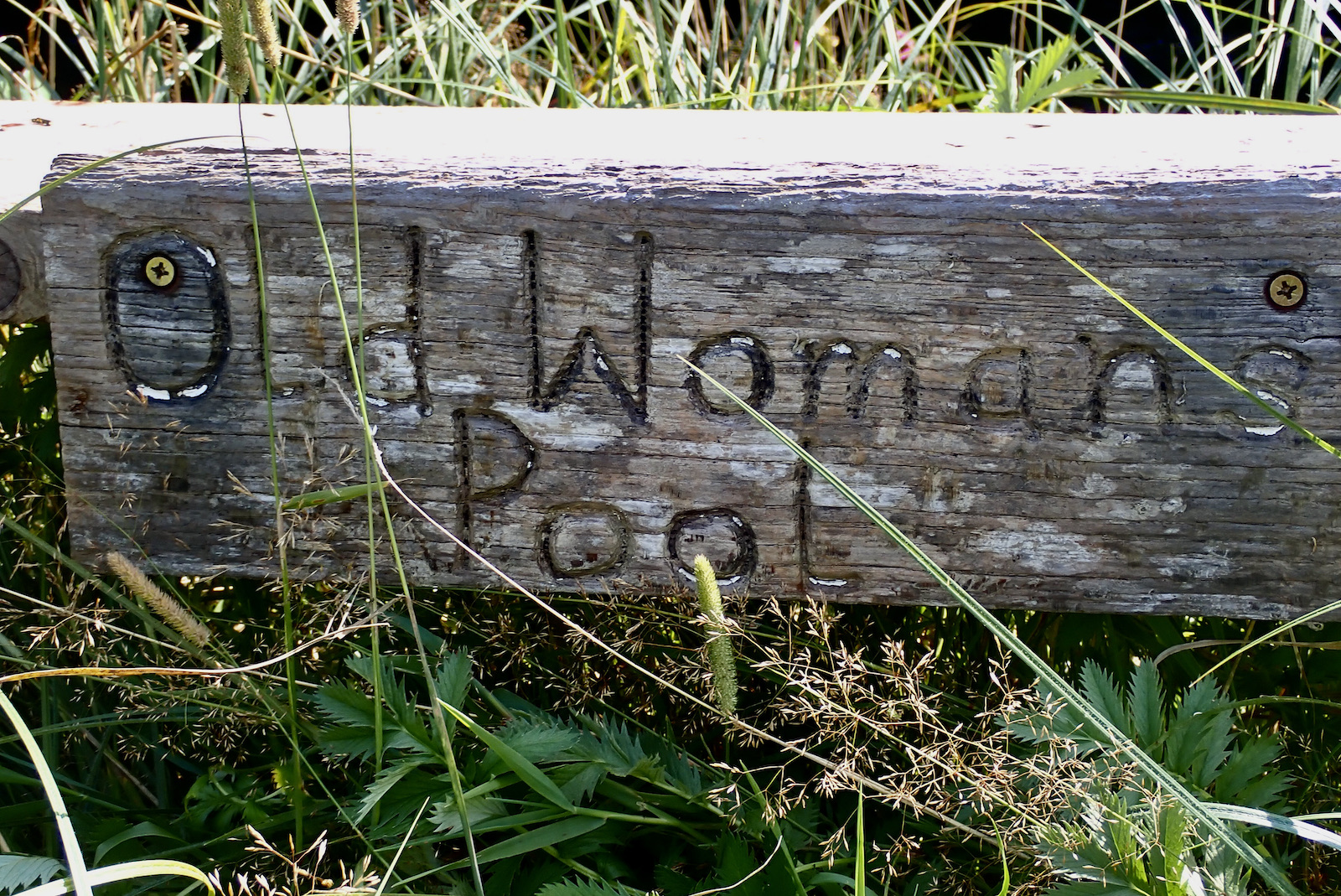
We arrived at Old Woman’s Pool and hut half way down the beat. A picnic table providing a pleasing spot to take our lunch as we savoured the timeless scene. Fishing Huts are undoubtedly places that absorb angling history as anglers from generations pause to take a lunch and debate the issues of the day.
We scrambled down the bank to the rocky foreshore where I threaded the line through the rings of my 7ft Snowbee Classic. I had purchased a couple of deer hair dry flies in Lance Nicholson’s after asking advice on what fly pattern to try. Pauline gave me sound advice and suggested I sit a while and watch the water as she had spied a couple of fish rising in the pool above.
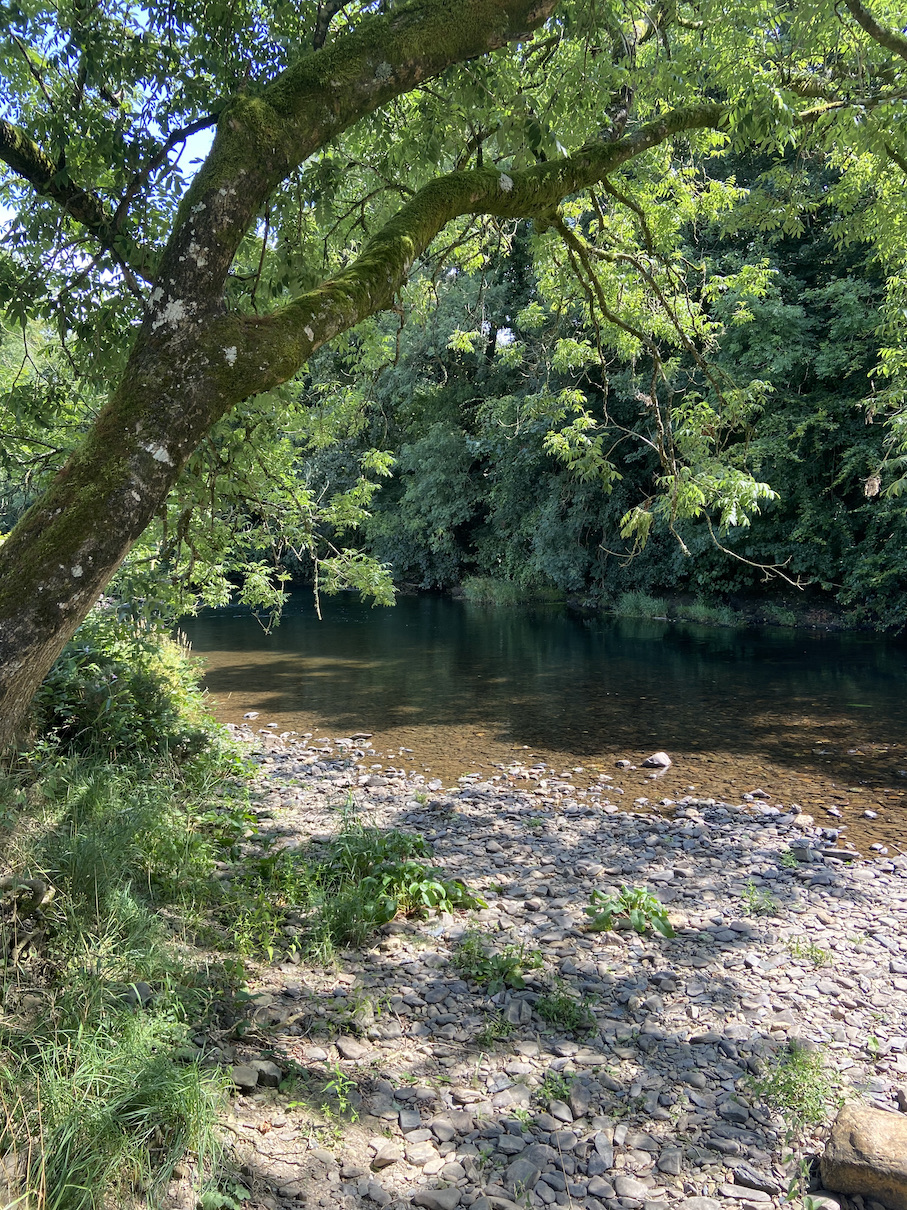
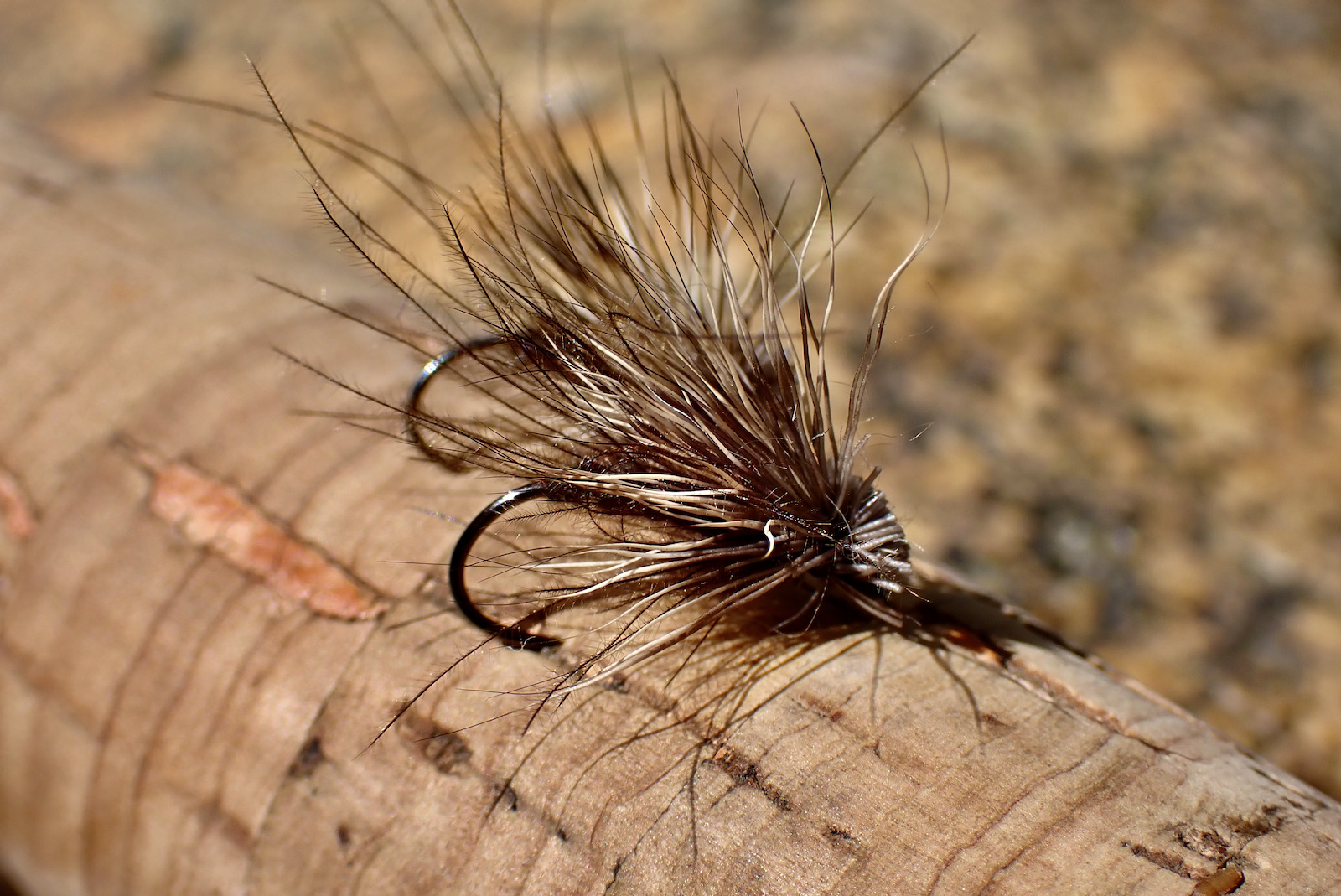
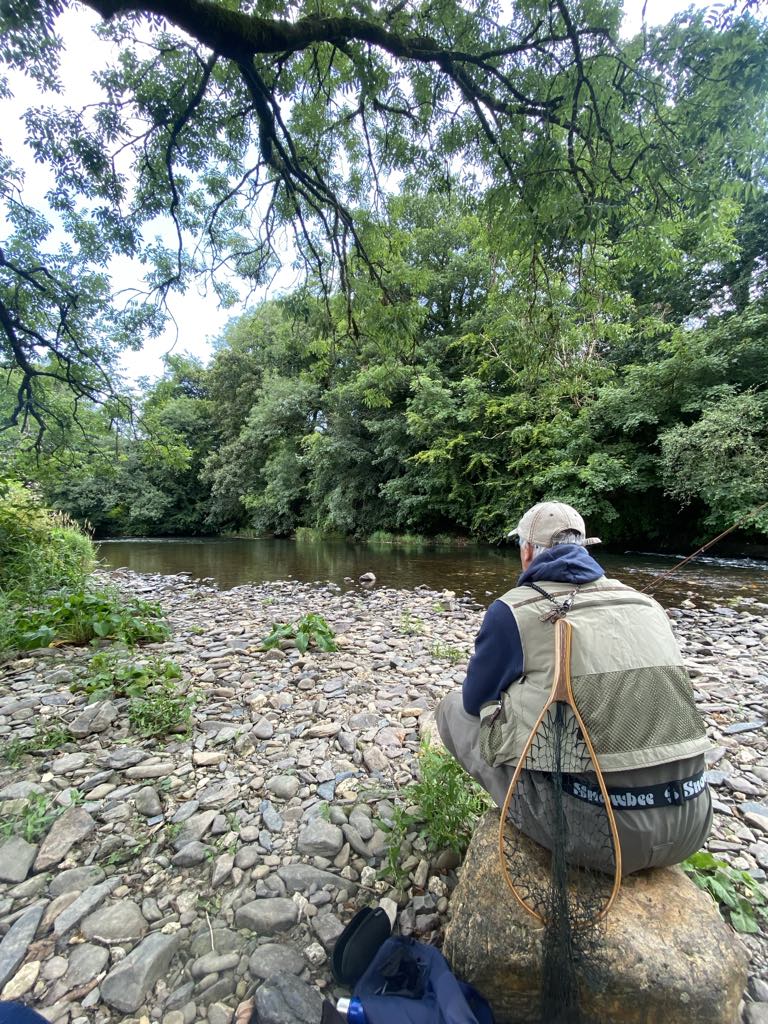
A kingfisher flashed downstream a streak of iridescent blue that always inspires. Large dragonflies hovered above the water and a wagtail paused upon a rock on the far side of the river. It was indeed good to pause before casting in haste savouring the ambience and scenery of the river.
I waded carefully into the shallows and worked my way slowly up the pool flicking the bushy dry fly into likely looking spots as I tried to read the water.
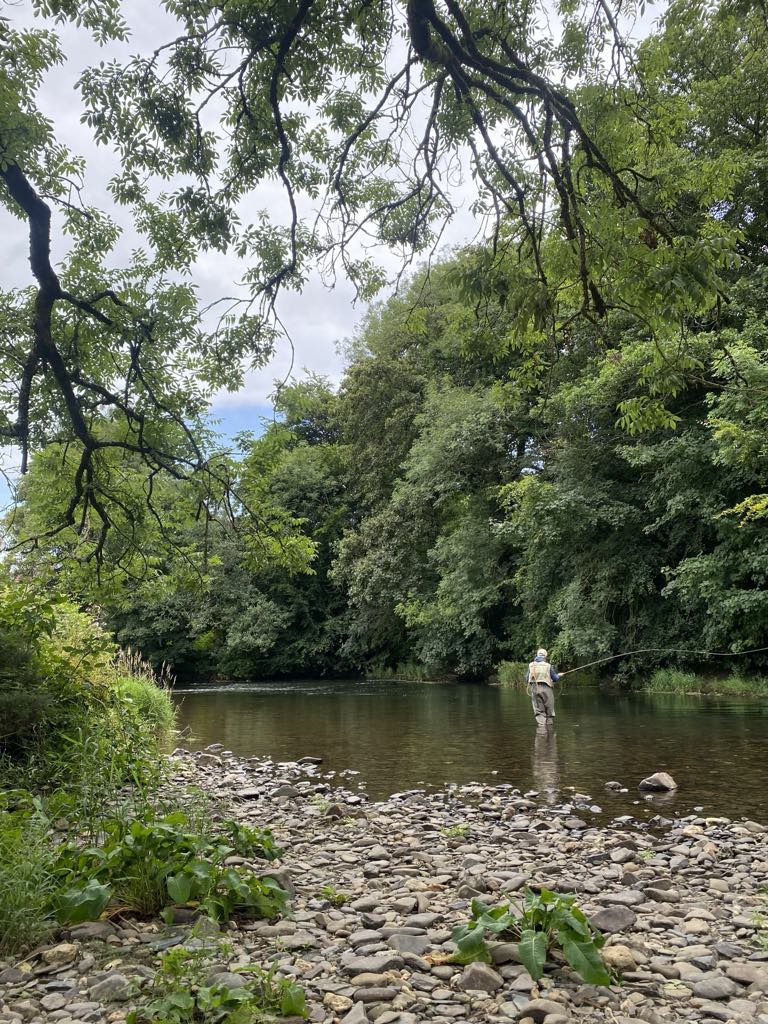
I didn’t really expect to catch in the smooth water as I have always found the fish easier to tempt in faster riffled water with plenty of oxygen especially during the days of low summer flows and higher water temperatures.
After exploring Old Woman’s pool with the dry I decided to head down river and fish back up exploring the faster deeper water with a New Zealand style set up. After fishing a couple of likely runs to no avail I removed the bushy indicator fly and tied on a heavy nymph.
I plopped this upstream allowing the heavy tungsten nymph to search deep down in fast dark water. The lines tip paused as I followed the progress and I lifted to feel that thrilling life transmitted through the line. A beautiful wild Exe brown trout was admired before releasing back into the cool water.
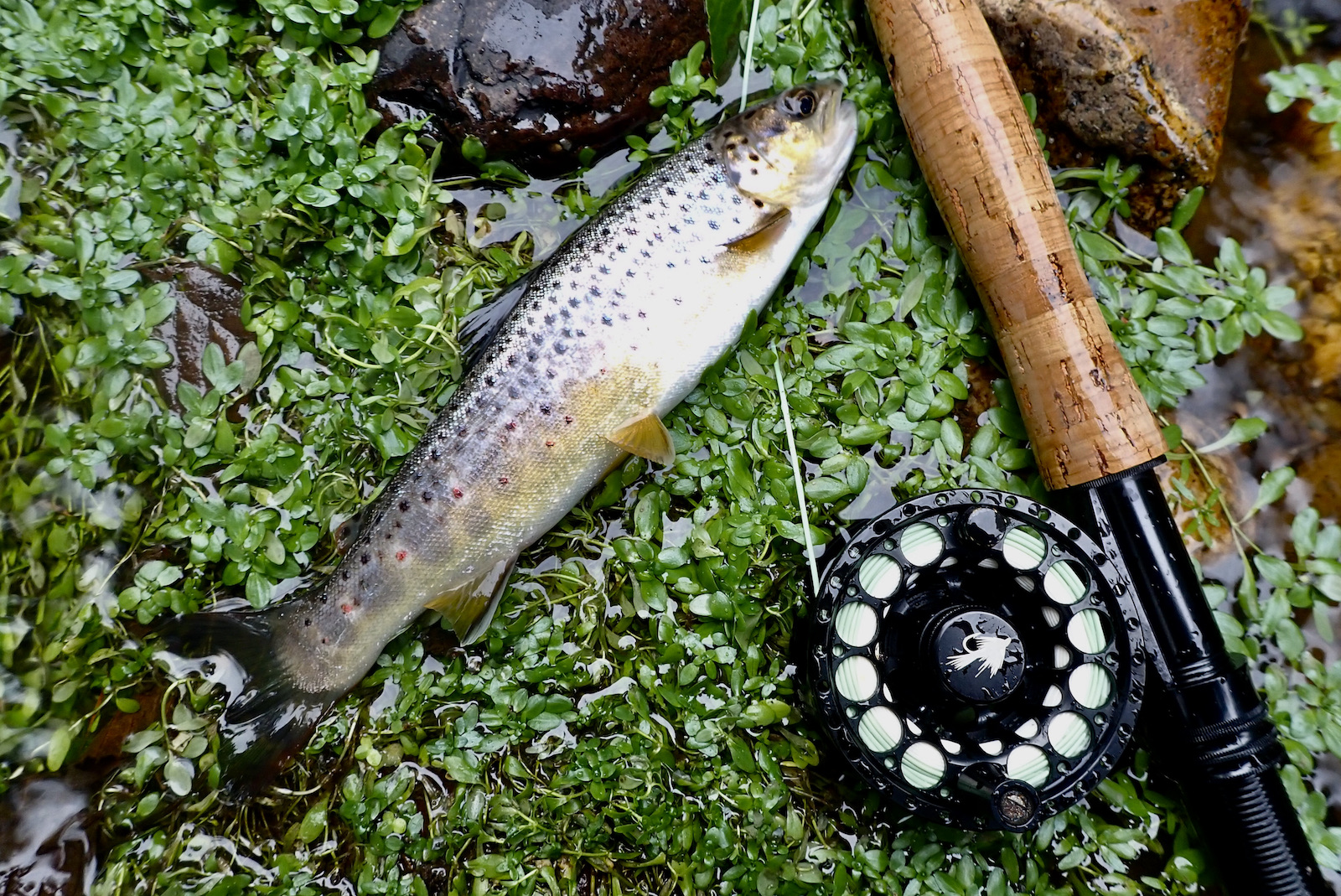

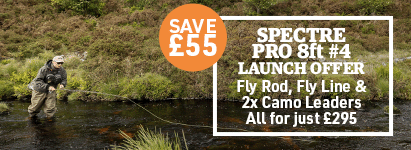
I fished on and hooked a bigger trout in the next pool. The fish darted to and fro causing a few moments of anxiety as it momentarily became snared in some weed. Gentle pressure brought it free and I slipped the net under another pleasing trout of over 10”.
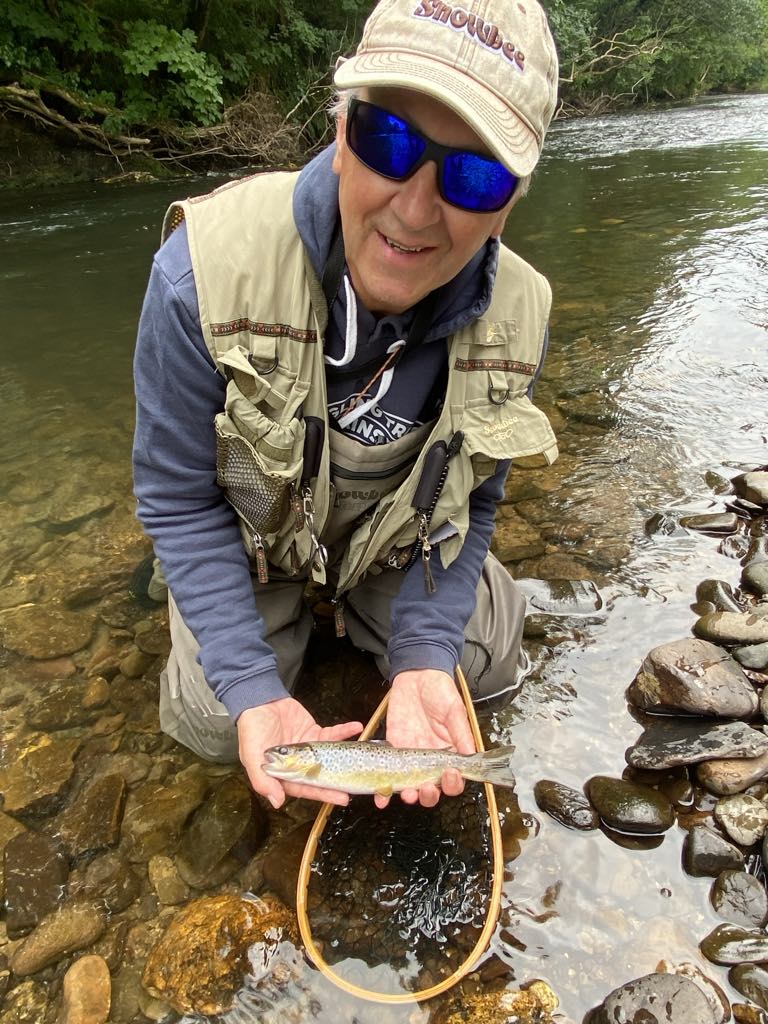
After lingering for a chat with Pauline who was reading the latest Exmoor Magazine at the water’s edge I returned to explore Old Woman’s pool again sending the heavy nymph into the deep dark waters.
At the head of the pool I waded carefully across the shallow shingle that runs into the pool. I noted that the shingle gives way, the water plunging into the dark mysterious depths of Old Woman’s Pool. I pondered upon the history of the pool and how it had got its name. Had those deep dark waters that offer so much life also taken life in the distant past?

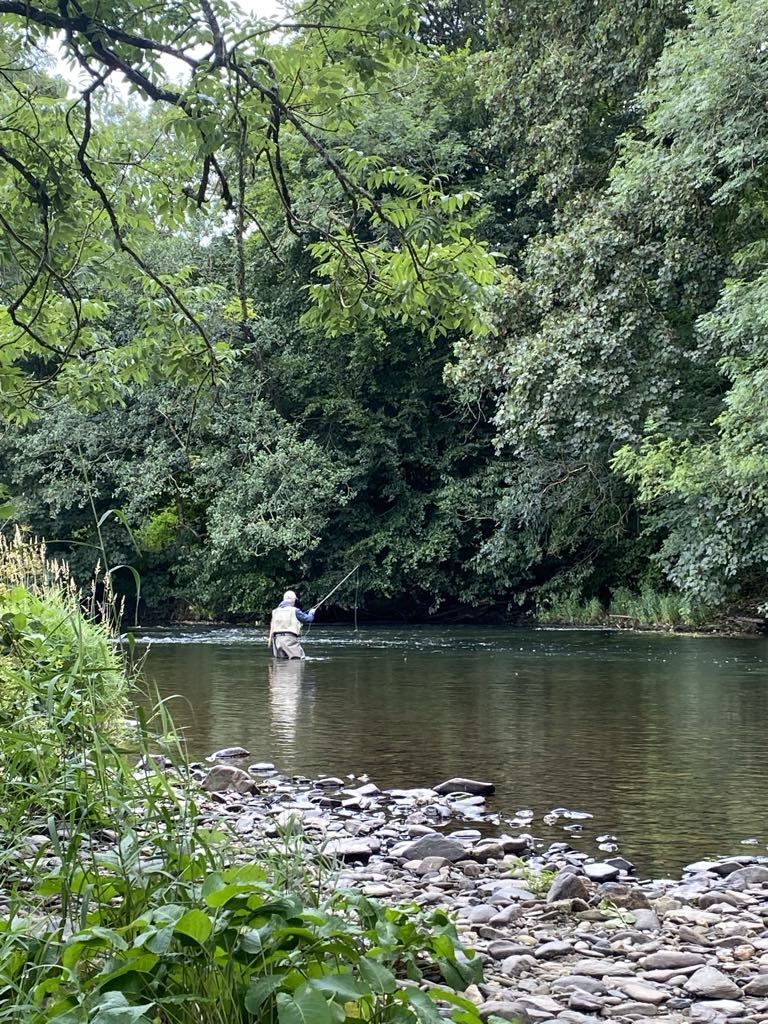
I messaged James at Lance Nicholson’s later enquiring about the pools name. He told me he would seek details from Michelle Werrett who may be able to elaborate upon the legend of the old lady who was taken by the river. Several anglers have talked of a presence they have felt by the river at this spot. I can well imagine the atmosphere of the pool as the light drains from the day beneath those ancient oaks.
I plucked my copy of Michelle Werrett’s fine book Song of the Streams and opened its pages to rediscover her accounts of fishing the Old Woman’s beat. I suggest you look out a copy and enjoy her evocative and descriptive prose.
Copies of the book are available at Lance Nicholson’s or online at https://www.medlarpress.com
I fished a few runs and pools upstream reverting to the new Zealand set up. With no further takes and no fish showing it was a good time to depart and head off in search of an evening meal to complete those birthday celebrations
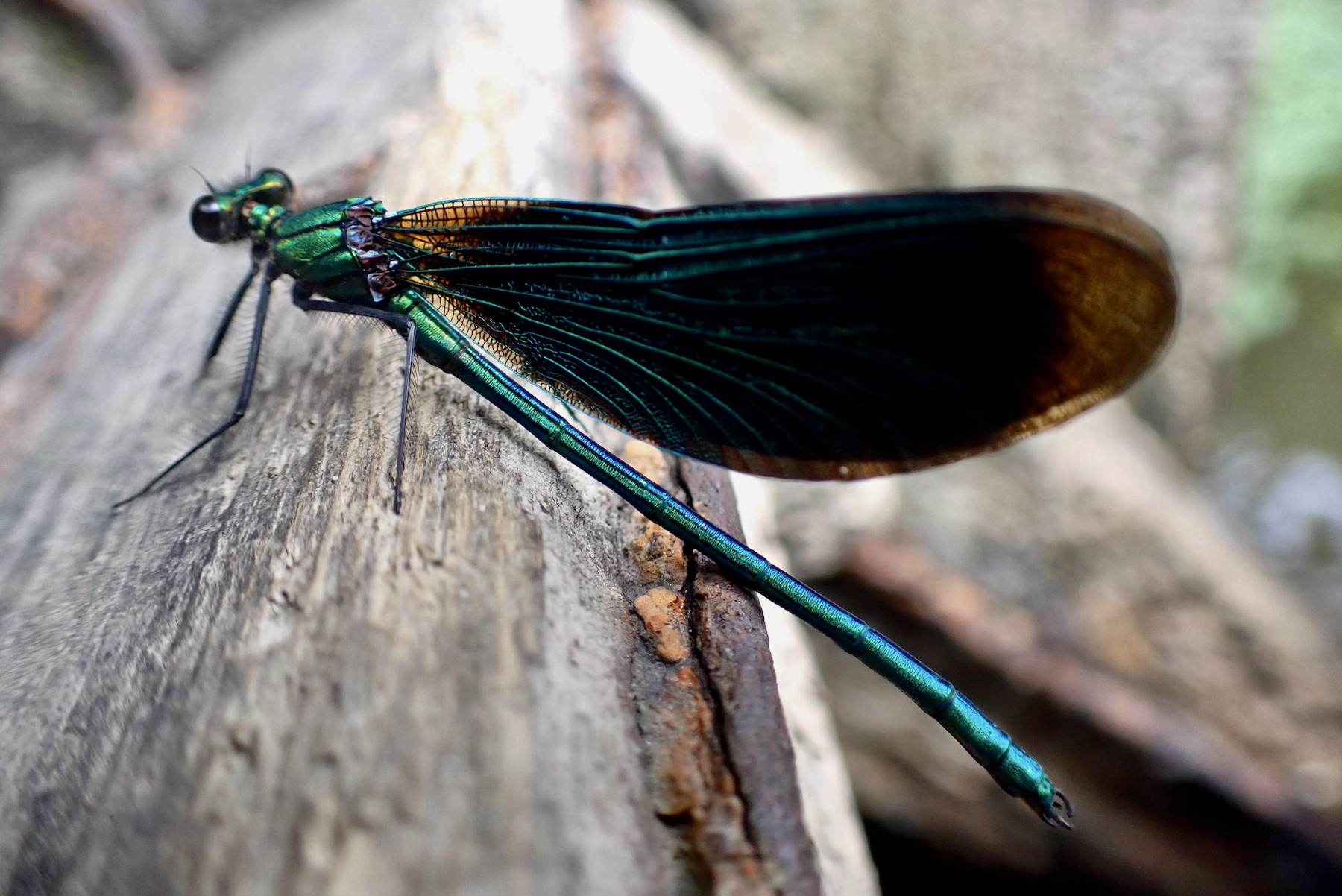
Bideford and District Angling Club held their presentation night at Bideford Conservative Club Friday February 23rd with close to forty members attending. I was privileged to join in presenting several awards along with Simon McCarthy from Summerlands Tackle. The evening was very enjoyable and a very positive vibe was apparent as members cheered the winners and added the occasional good natured banter to proceedings. It was very encouraging to hear of a very healthy number of Junior anglers taking part during the summer Coarse series. Many thanks to Adam Wheeler for taking some excellent pictures of the evening.

Season 2023 / 24
Matchmans Cup
Nathan Underwood
126 points
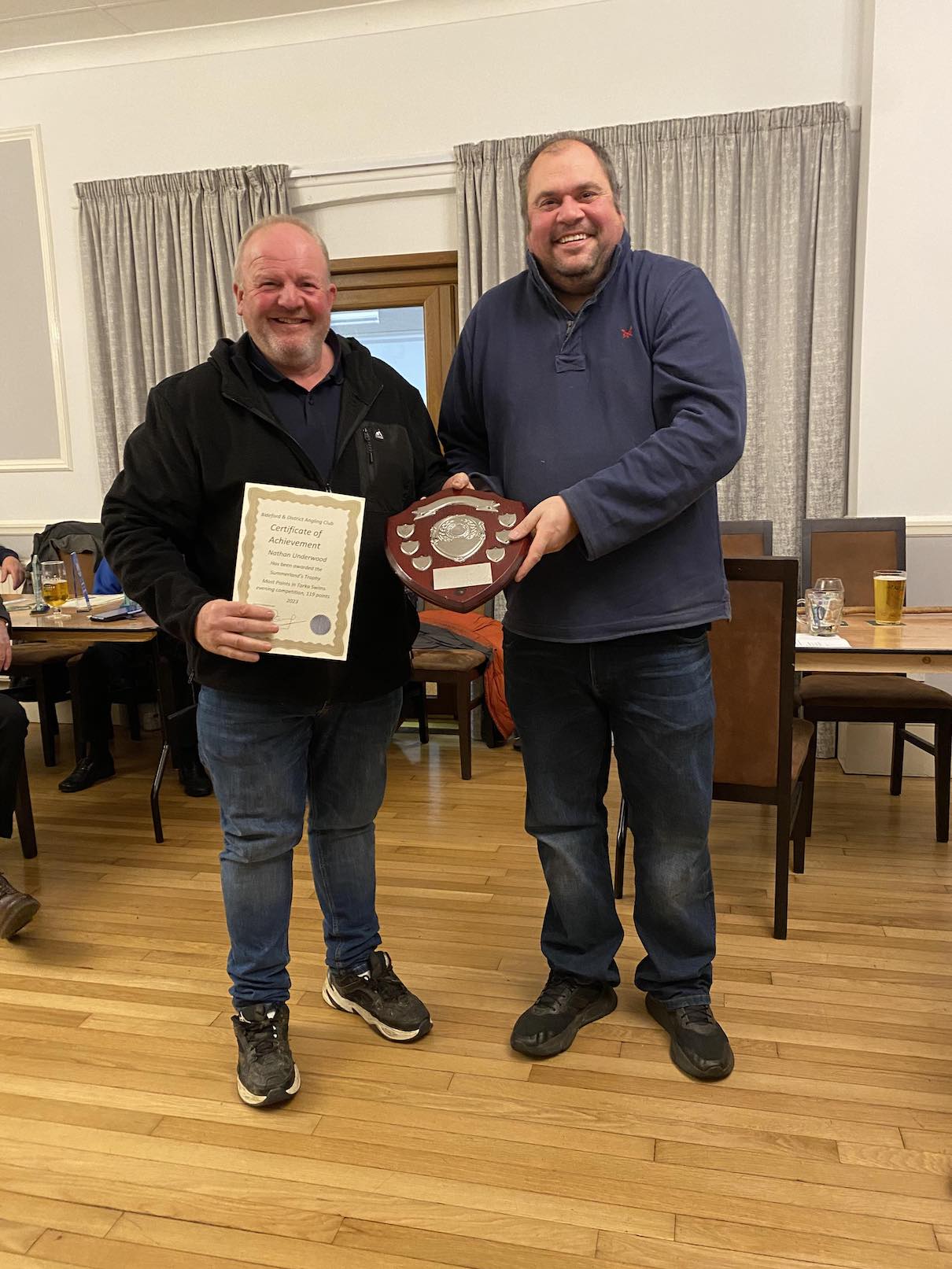
Runner-up
Kevin Shears
115 points.
Junior winner
Brodie Allin
57 points
Junior runner-up
Ted Blight
48 points
Evening series
Winner
Nathan Underwood
119 points
Evening Runner-up
Richard Jefferies
107 points
Pairs trophy winners
Roger Ackroyd
Craig Lamey
Top weight in competition
Darren Polden 71lbs

Stephen Found 55 pts
Valentine bowl – most points in the monthly Rover.
Nathan Clements Gilthead bream 8lb 2 1/4 203.515%
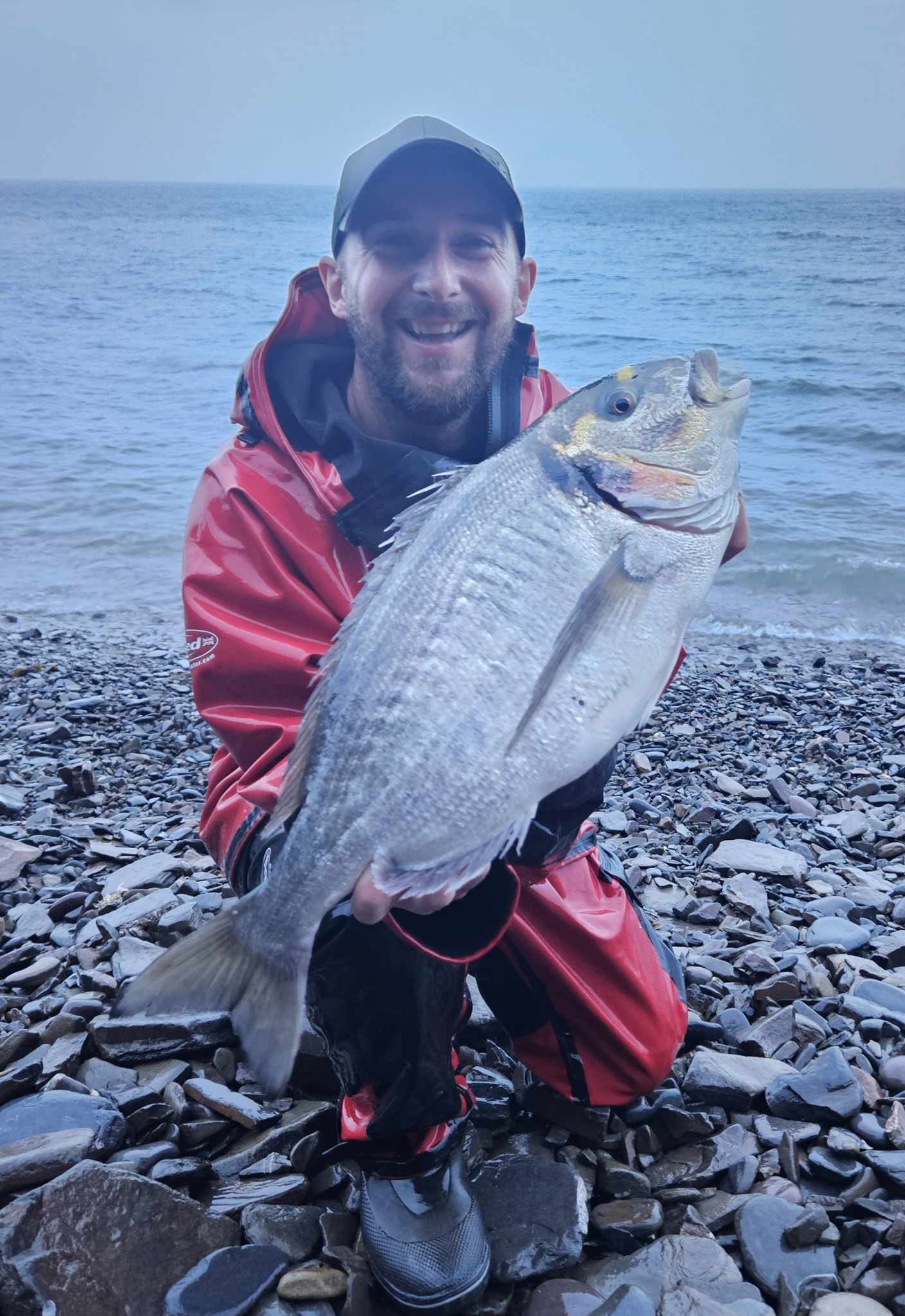
Stephanie Vanstone – Best specimen caught from the shore.
Stephen Found Thornback Ray 13lb 10 151.388%
Jason Talbot Memorial plate – Best specimen ray caught from the shore.
Tony Gussin Conger 14lb 5 71.562%
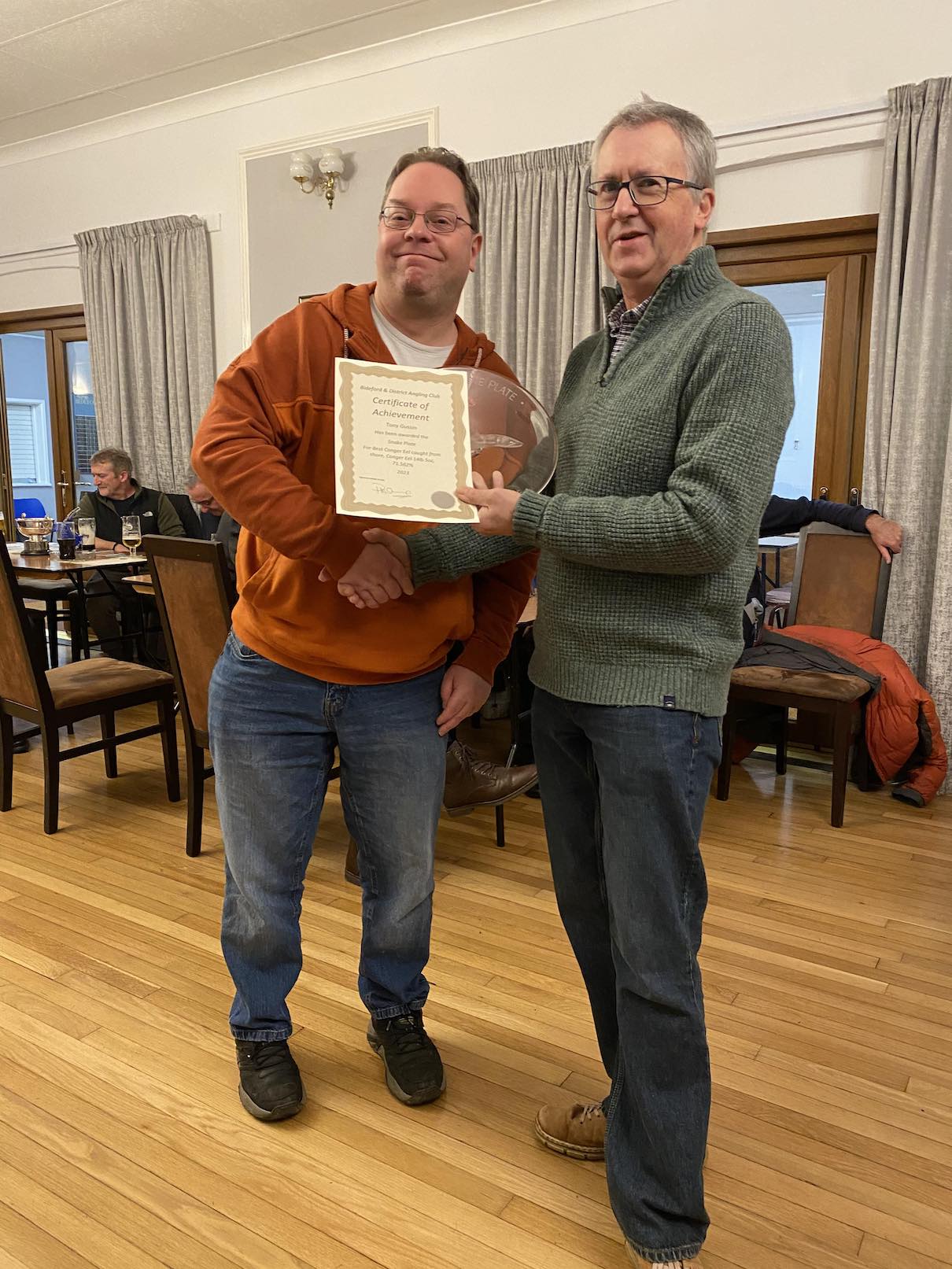
Snake plate – best specimen Conger caught from the shore.
Nathan Clements Gilthead bream 8lb 2 1/4oz
Best round fish from the shore
Stephen Found Flounder 2lb 4oz 112.5%
Best specimen flat fish caught from the shore
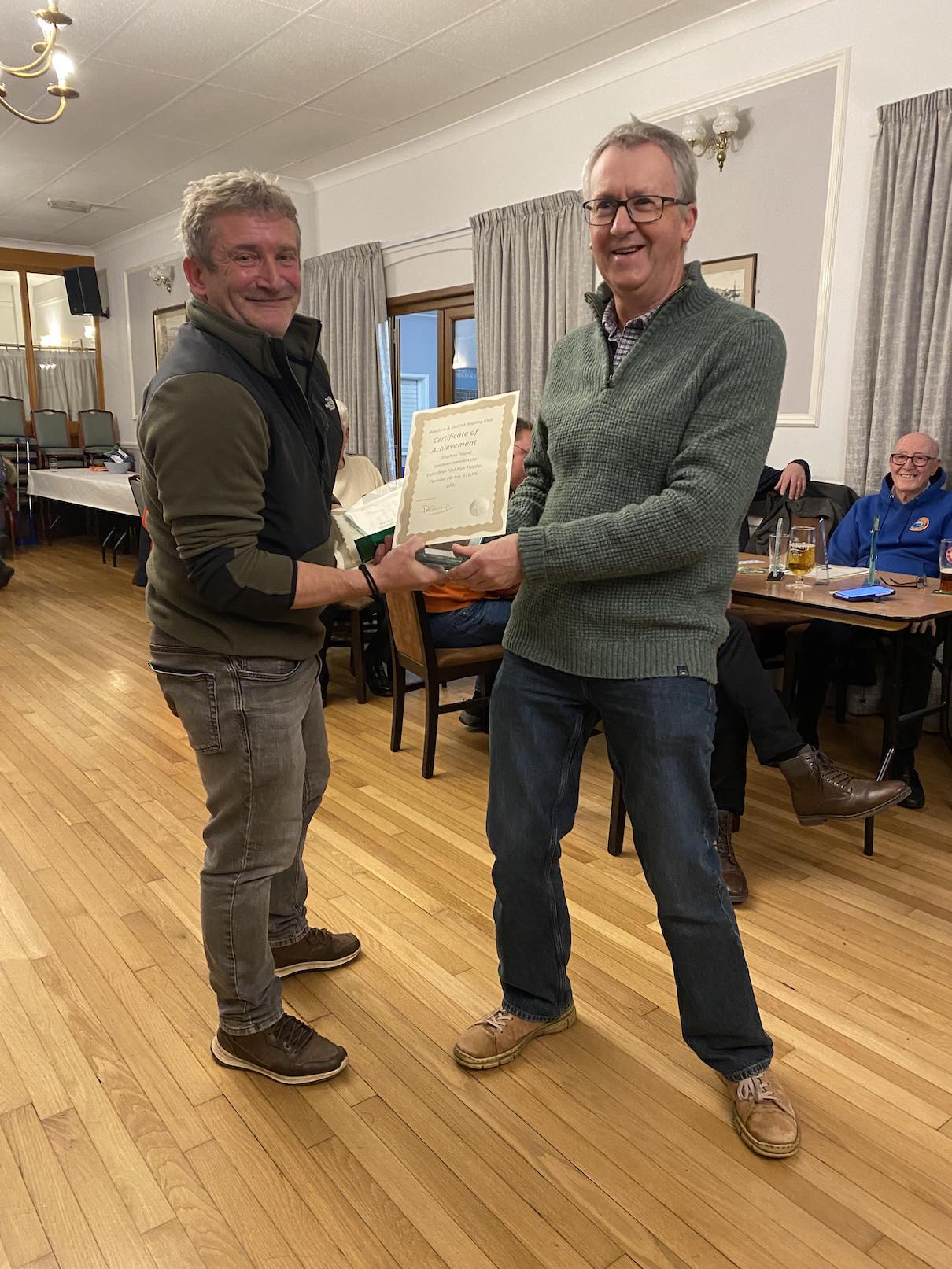
Stephen Found Smoothhound 14lb 5oz 143.125%
Best specimen shark from the shore.
Nathan Clements Small-eyed Ray 10lb 4oz 1/2 114.236%

Winner of end of season competition
Paul Ackland 4lb 1oz
Big Mike Memorial vase
Stephen Found total of 1160.118%
Species challenge cup
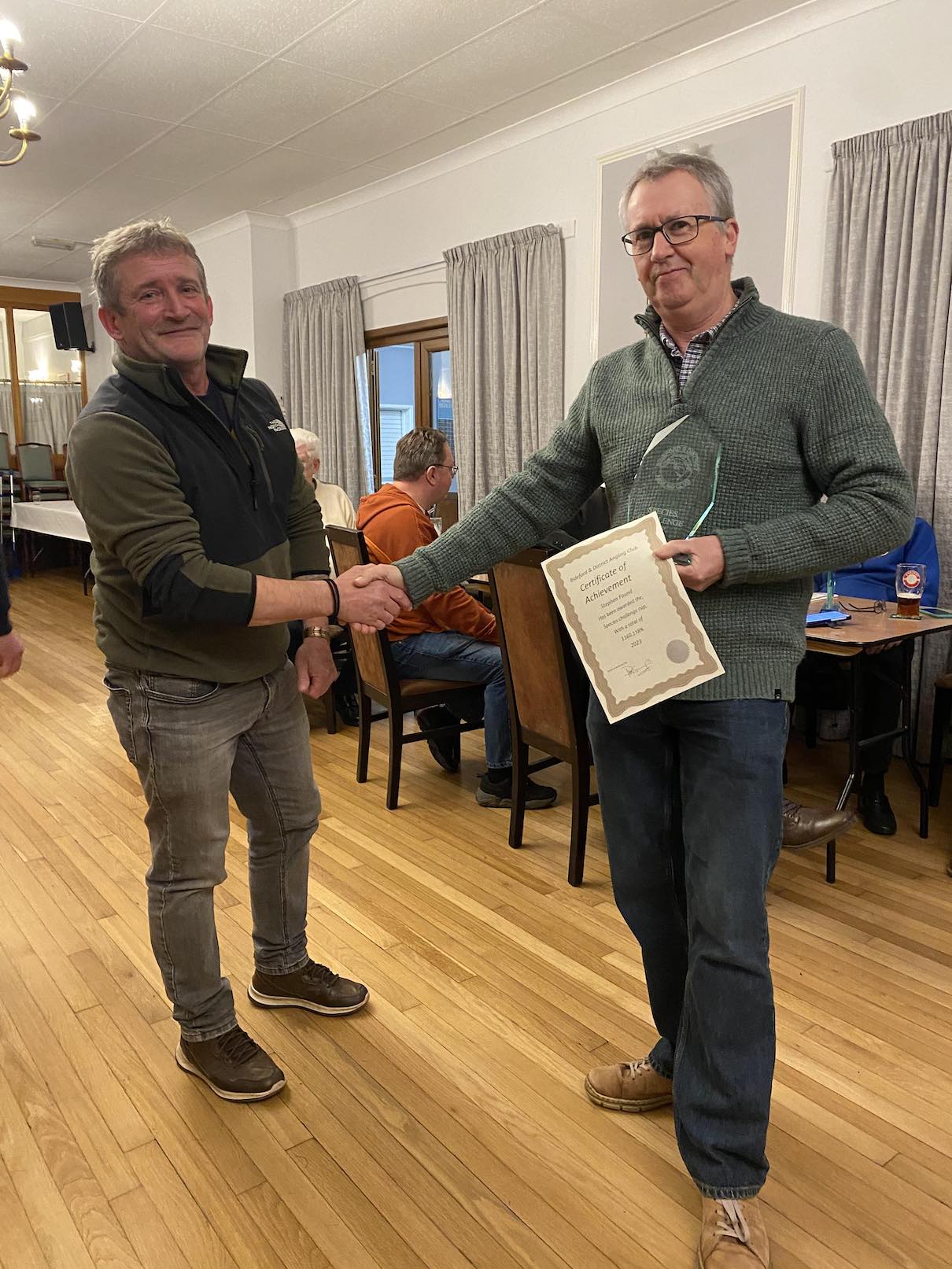
In the game fishing section John Mc Cullam and Terry Dymond dominated the results collecting five awards between them.



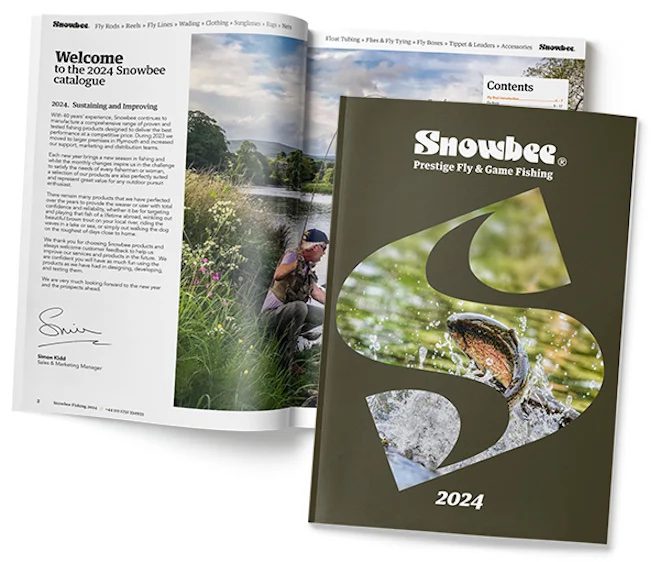

South West Lakes Trust hosted their annual Fly Fair at Roadford where Fly anglers from all over the South West converged for this ever popular curtain raiser to a new season. A wide variety of stands represented those involved in the Fly Fishing Community. The events main sponsors were Chevron Hackles, Holmleigh Angling Centre, Catch, Snowbee and Turrall.
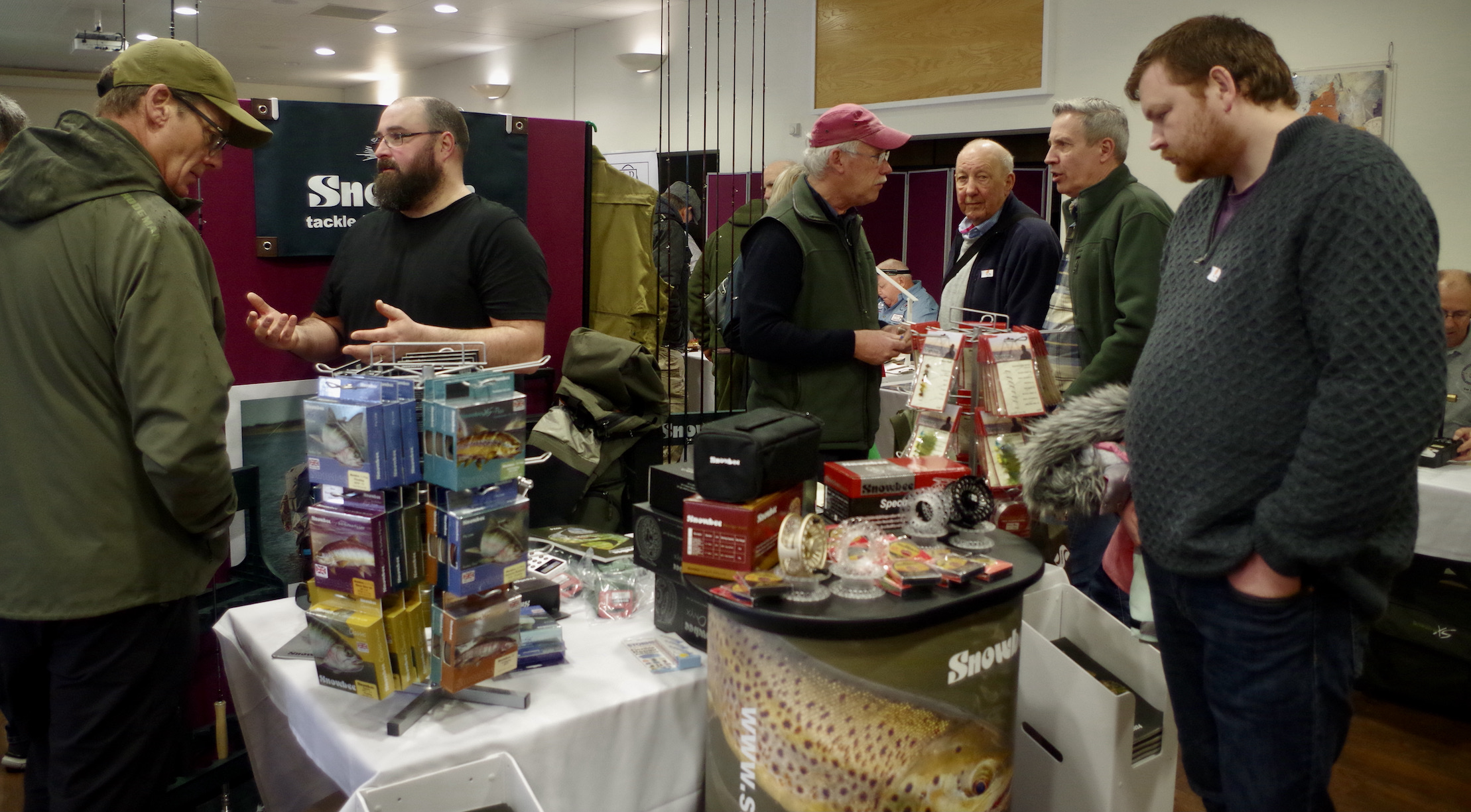
Charles Jardine opened the event stressing the need for anglers to get out fishing and support their local fisheries. He also spoke of the benefits of introducing young people into the fascinating world of fly fishing that has many positive benefits for mental health and general well-being.
Discussion flowed freely throughout the day with many plans set for the coming season. The long wet winter has undoubtedly impacted upon winter fishing with those fly anglers seeking sport with grayling and pike having a difficult time with only short periods when conditions were suitable to visit the water’s edge.
There has been considerable change over recent seasons as society has been impacted upon by Brexit, Covid and the cost of living crisis. Angling and fly fishing has of course been affected by all of this but it is perhaps even more important that our pastime thrives to bring much needed sanctuary from this gloom laden world.
Fly fishing has long been seen as a rather elitist branch of angling and when I started casting a fly fifty years ago the art of fly casting was still to some extent seen as a sport for the gentry.
The boom in Stillwater trout fishing during the 1970’s broke down these social barriers to some extent as a wider section of society enjoyed catching rainbow trout stocked into water supply reservoirs.
I remember being thrilled to catch the occasional limit bag of trout when I started out with the fish averaging around 1lb. As fisheries spread competition increased and small still-waters started opening stocking ever larger trout. Into the 1980’s and 1990’s double figure rainbow trout became a regular feature with some fisheries stocking fish to over 20lb.
This increasingly artificial commercial fishing resulted in ever increasing expectations from anglers. Another factor that perhaps influenced stocking was a significant increase in cormorant populations across reservoirs. The stocking of rainbows under 1lb 8oz became unviable as smaller trout were simply mopped up by these predatory birds.
Covid impacted upon us all but there was an initial post covid boom in fishing as anglers escaped to the great outdoors to enjoy a pastime that offered a safe environment. The value of fishing to mental health became much appreciated and for a time it seemed fly fishing was in a good place.
Sadly, the cost of living and angler’s unrealistic levels of expectation has resulted in an unsustainable situation. The spiralling cost of fish food and hot summers has impacted upon the farms that provide stock fish. The result is that fisheries are forced to pass the costs onto customers. In a cost of living crisis, it is very much a case of the survival of the fittest and as a result we are seeing the collapse of some fisheries Draycote Water in the Midlands being a case in question.
So having painted a rather gloomy picture of the fly fishing world in this country I will now look for those proverbial green shoots.
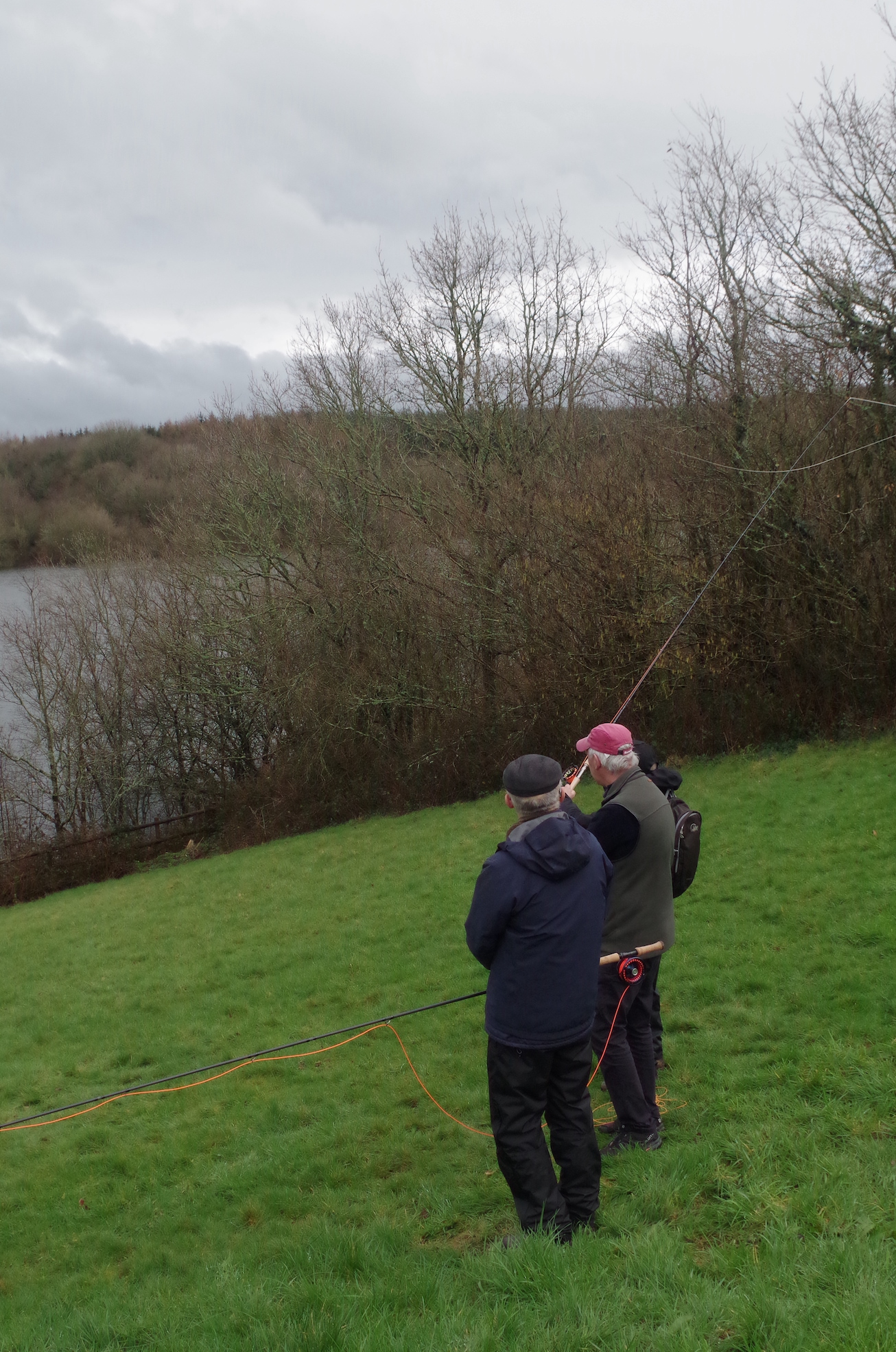
This year’s fly fair brought together a wide dynamic of anglers from the West Country Fly Fishing scene. With a new season ahead, there was undoubtedly a positive and optimistic drive as the leaders of this pastime urged us to get out fishing and support our local fisheries.

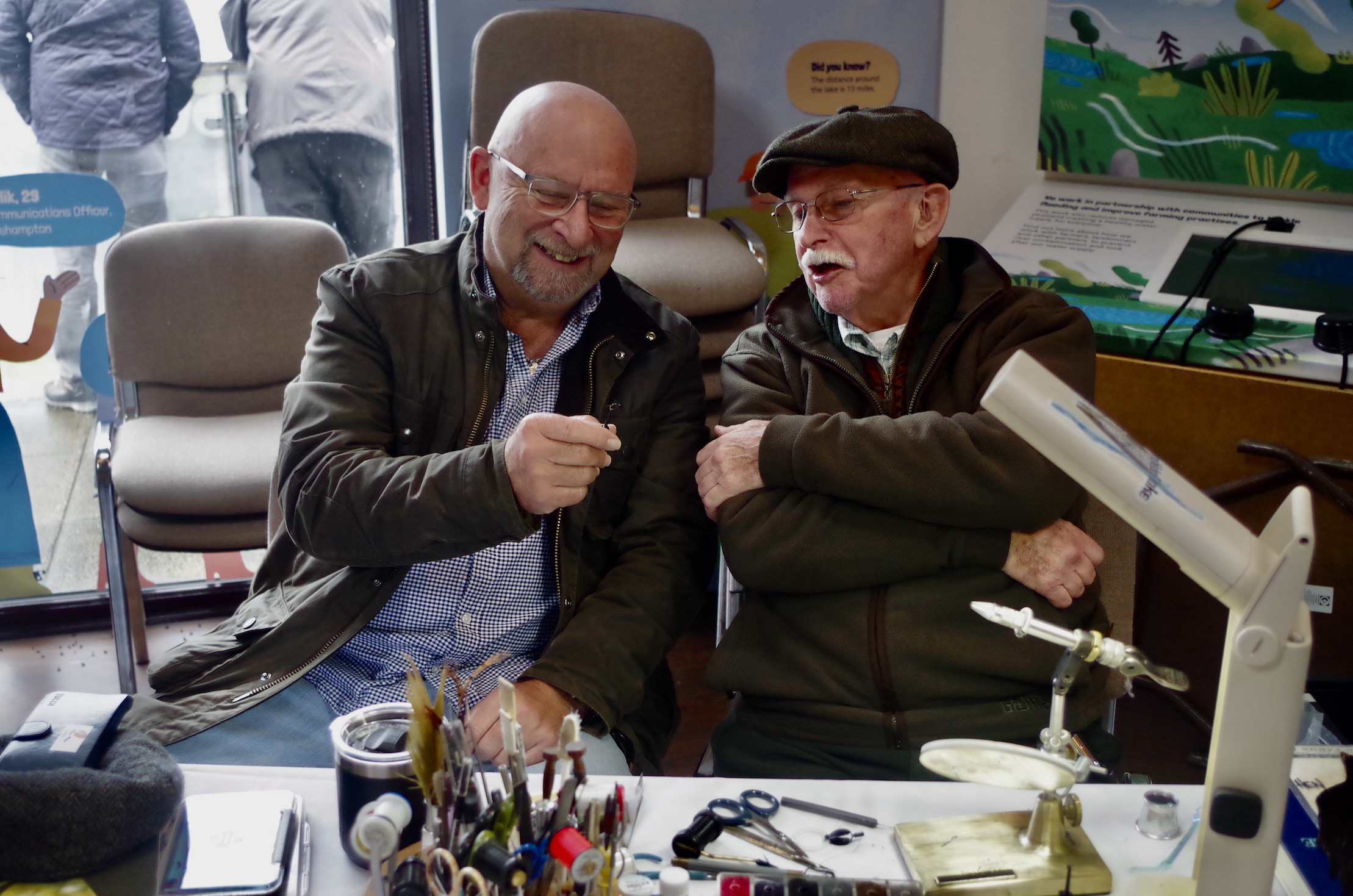
Concern for the environment was evident with fishery associations promoting their waters that are often surprisingly cheap alternatives to the commercial waters.

Companies like Catch and Fish Pass are now offering a new way to buy day permits using the latest mobile phone technology.
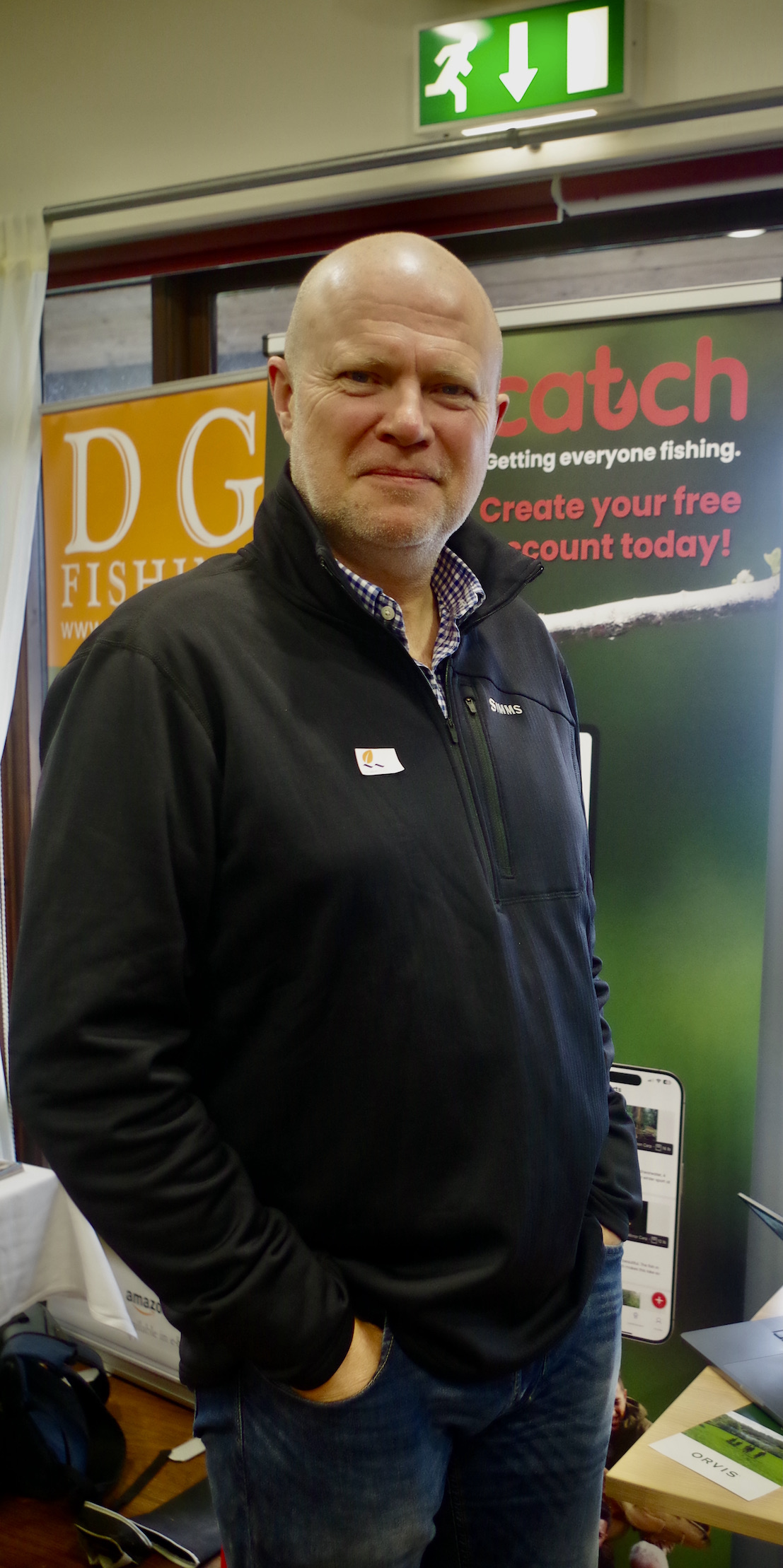
In contrast to the modern world traditional craftsmen like Luke Bannister were at hand to display magical wands of split cane that add sweet perfection to an angler’s day.
I took pleasure in introducing Michelle Werrett whose new book Song of the Streams is enchanting readers to fellow author Mike Weaver whose writing has delighted West Country anglers for many decades. His book In Pursuit of Wild Trout published in 1991 is a classic tome that is timeless in its validity.
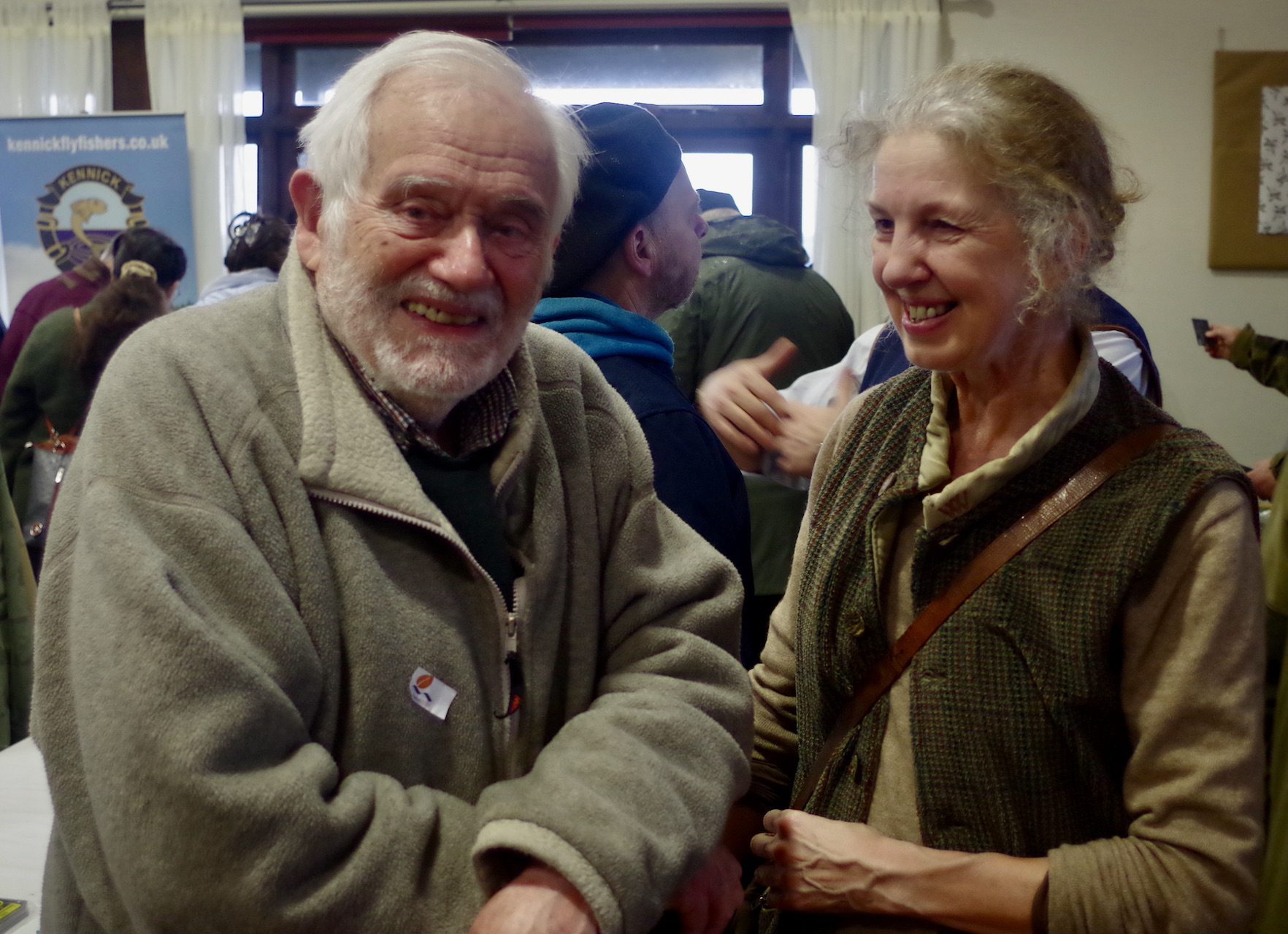
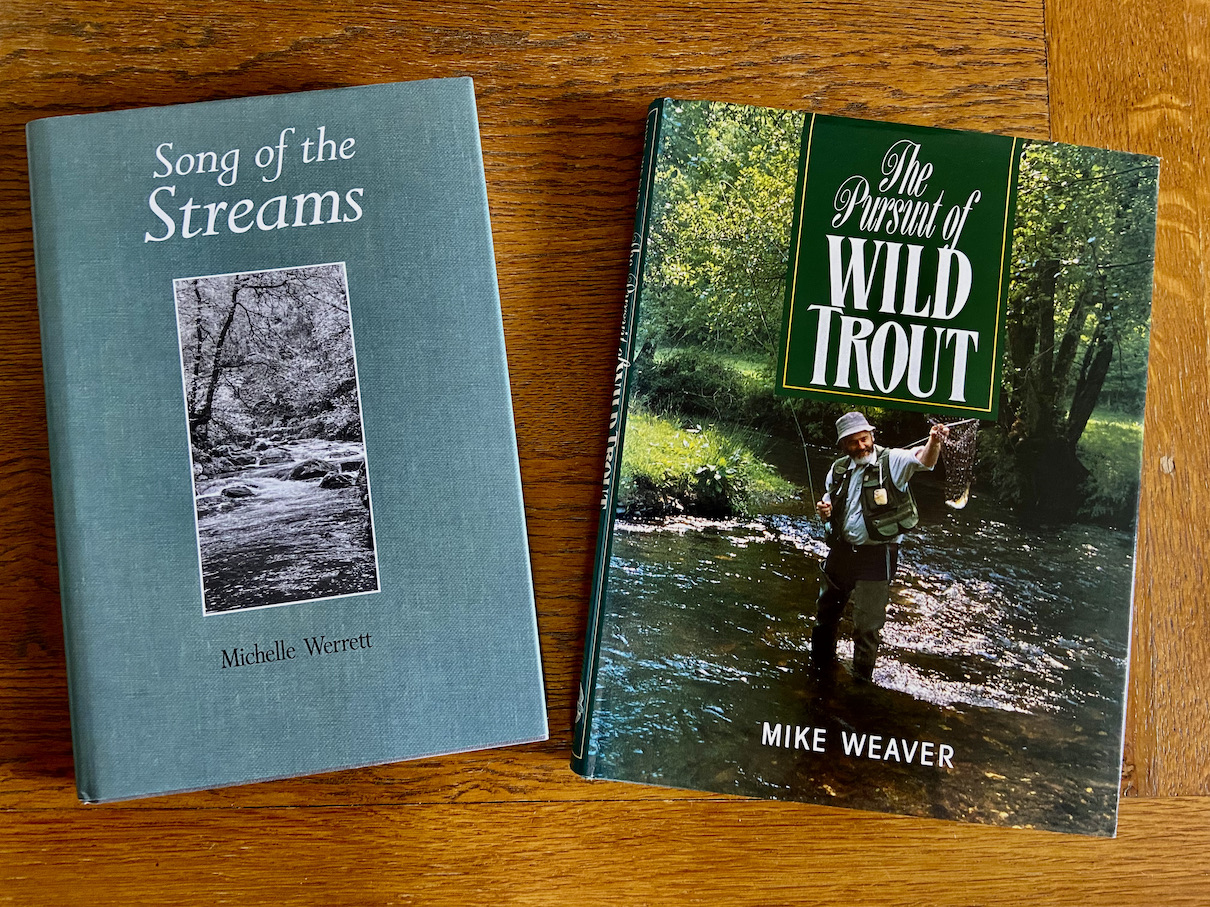
The West Country has a wealth of wild streams that offer exciting fishing for wild brown trout and a sadly diminishing number of salmon and sea trout. Adrian Bryant has been promoting the excellent film Riverwoods across the region and I joined him in presenting a short preview of this film giving my own brief view on the tragic decline of salmon.
Chatting with many at the Fly Fair it was apparent that there is a willingness to adapt and there are signs that new thinking is starting to break down the barriers of tradition. There is a growing desire to fish for varied species across different waters.
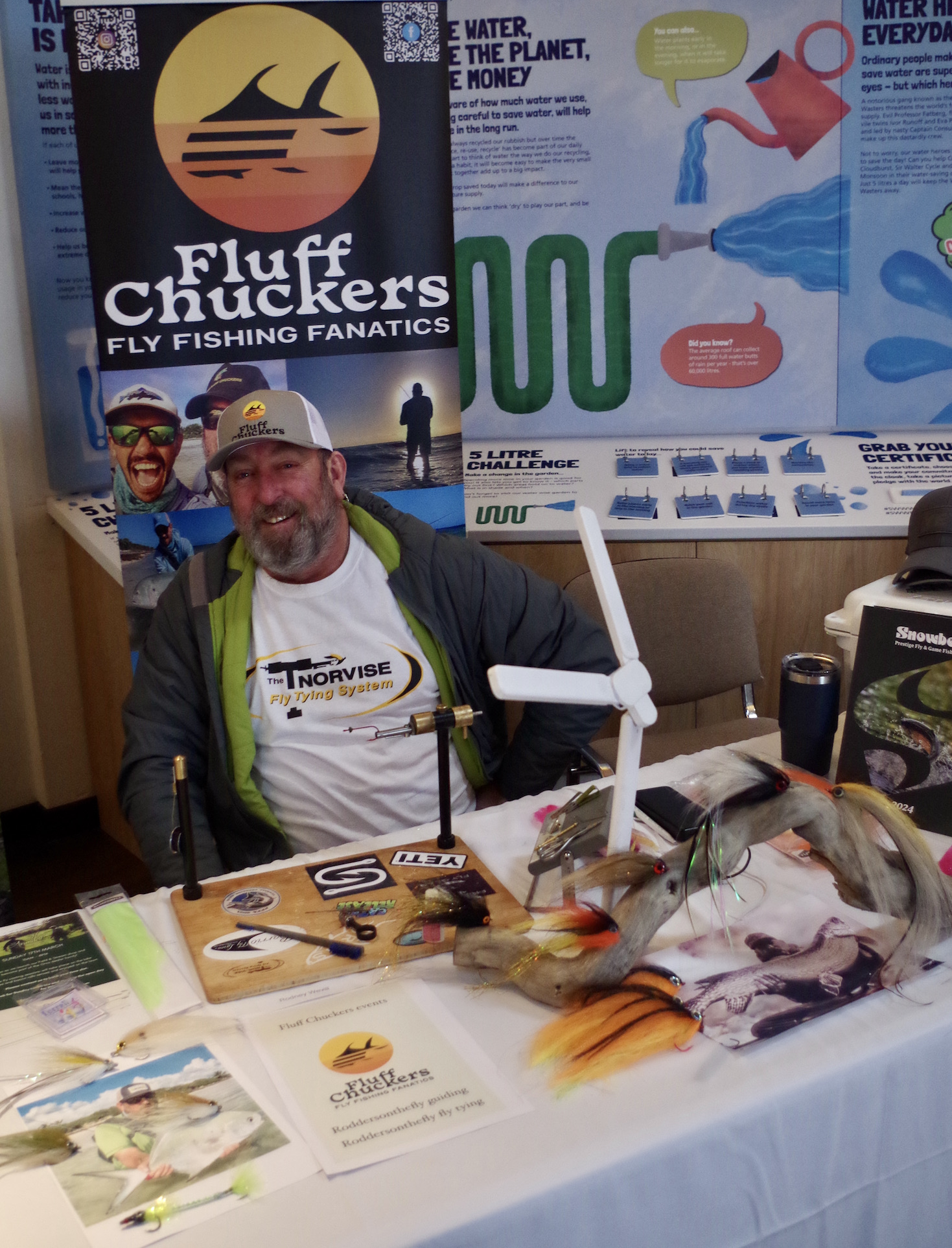
Pike from large stillwater’s and canals are an increasingly reported trend. Perch, rudd and carp are also gaining a following with Dominick Garnett columnist for the Angling Times giving a thought provoking talk on fly fishing for coarse fish. There is also an increasing number of anglers targeting sea fish with bass and mullet offering exciting sport during those hot months of summer when the trout are dwelling deep down in the reservoirs.
There are those who taking fly fishing into cross over territory with LRF with talk of using squirmy flies employed to catch blennies and other species from rock pools using 2 wt. rods more often used to target wild brown trout in moorland streams.
The definition of Fly Fishing on Wikipedia is “ Fly fishing is an angling technique that uses an ultra-lightweight lure called an artificial fly, which typically mimics small invertebrates such as flying and aquatic insects to attract and catch fish.”
This differs somewhat to my own thoughts where I had always believed fly fishing to be a technique that involves projecting the fly to the fish using a line as the weight. The traditional casting styles were entrenched within my mind set. But I now see an unfurling world of unorthodox presentations as anglers dibble and jig their flies or lures.
This is a world far from those days captured within the classic tomes depicting Fly Fishing on the revered chalk streams of England. Surely though there is room for all as our splendid pastime evolves as it always has?
We are living in times far removed from those of Halford whose doctrine of the Upstream Dry Fly stimulated debate within the world of the wealthy and privileged during Victorian Times.
I returned home from this year’s fly fair full of enthusiasm for the coming season with plans made that this year I really must try to make happen.
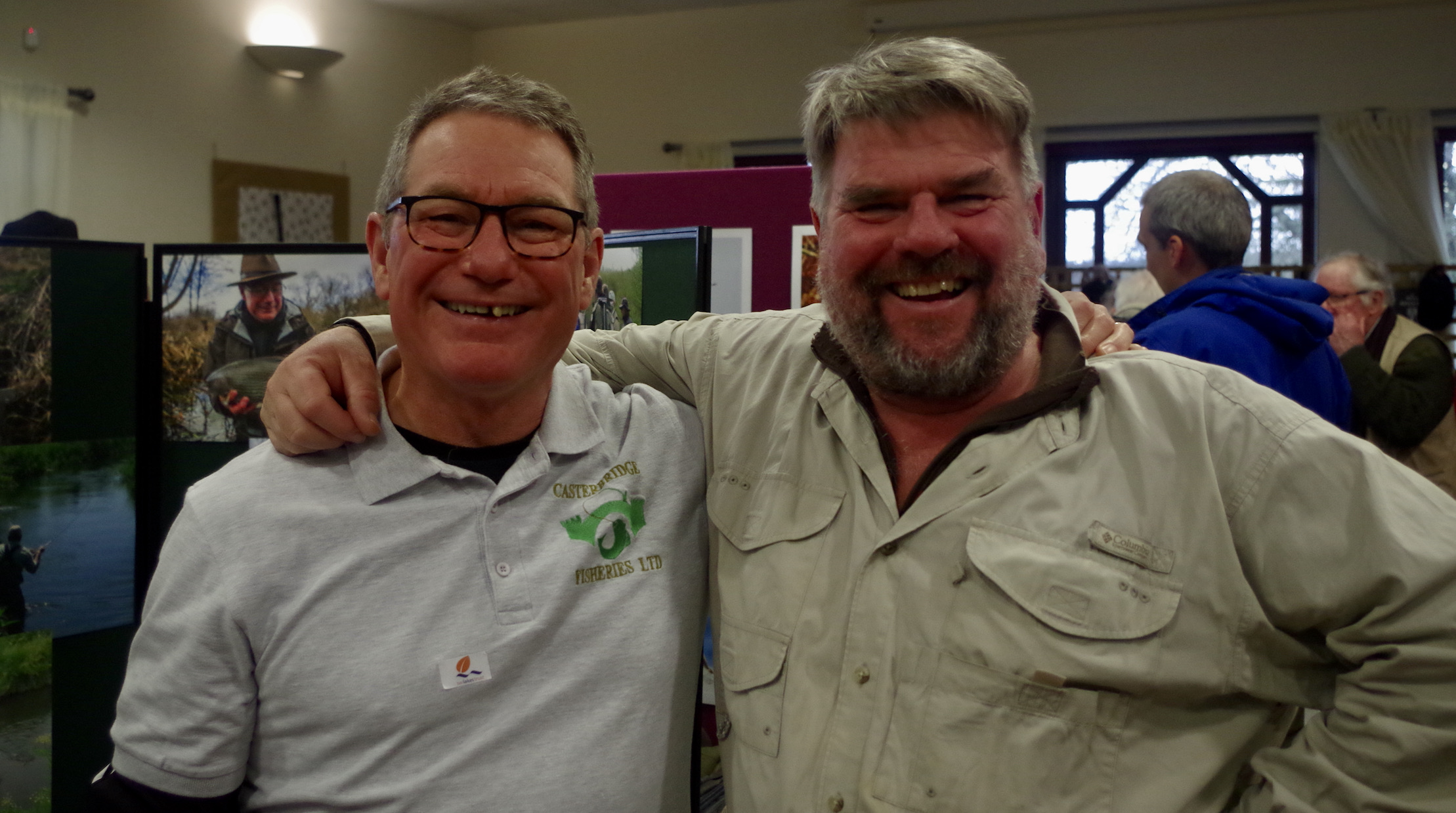
Many thanks to Ashley Bunning and all at South West Lakes Trust for hosting a fabulous fair.

Extreme weather in the form of a Polar Vortex is hitting the USA, Canada and Northern Europe. I see that while most sensible people are staying indoors, the climate deniers are out in force declaring the death of global warming. One moment it was all thaw and uninsurable ice-fishing tournaments, now they say it’s too cold for the delicate greenies to go outside.
So are they right? On the one hand, they insist climate change is all bull-feathers while on the other it’s ‘Do you remember the good old days when we had real winters’? To try and steer a path through the confusion, here’s a handy little cartoon strip that explains what’s happening:
 |
So nostalgia wins. Winters really aren’t what they were back in the day.
Which begs a question: If the climate is getting warmer, and it is, then what does the future hold? After all, these same climate deniers are both stridently pro- their nostalgic old-cold winters and pro-coal, which is where a lot of the warming CO2 pollution come from.
Well, the good news is that our prospects for containing the worst excesses of climate change are improving. We are fast approaching peak carbon (maybe this year, maybe next) and coal is looking a bit, well, limp.
The world’s green energy generation increased by an astonishing 50% last year (IEA). Solar accounted for three-quarters of this. In the US, utility solar power is expected to grow by 75% in the next two years while coal is in steep decline.
Consider also that the amount of energy each of us consumes has fallen sharply. Everything from fridge-freezers and washing machines to TVs, cars and keeping our houses warm is more efficient. We might have more gadgets, but they consume a fraction of the power of what went before.
They may not know it, but the carbon footprint of climate change deniers is shrinking – so give them a pat on the back. Well done! They’re doing their bit (non-consensual wokesterism – whatever next?).
The global flight of investment capital out of coal and fossil fuels and into renewable energy is becoming a stampede. This is not about greenie sentiment. Renewables have plummeted in price while their technologies have become more and more efficient. Simultaneously, the huge and long-term investment needed for new coal mines and oil refineries is very risky. Would you sink $5-15 billion into an oil refinery with increasingly uncompetitive pricing and diminishing demand? How will you get your money back?
The IEA expects a 250% growth in global green power production over the next 4 years. The COP target is 300% by 2030, so it’s starting to look doable.
And while we are now certain to overshoot the 1.5C warming set at the Paris COP, 2C or thereabouts is looking achievable. This is better than many expected, and will still be disruptive. But, even so, we can do a lot to adapt to 2C, whereas the 5C+ we were heading for would have been calamitous.
We’re getting there. To be sure there’s a lot of work to do – but I’ll back us to get it done. The direction of travel is set, King Coal is fading and the denialists are coming along for the ride (shh…). Just follow the money.
With thanks to ‘Not the End of the World’ by the brilliant Hannah Ritchie. A great read about positive outcomes. Thanks also to Andrew Kessler for using the cartoon before me – which is how I found it.

https://ilfracombeaquarium.co.uk
Ilfracombe Aquarium Vacancy
Part-time Aquarist/Visitor Engagement Assistant
General Description
Based at the aquarium, the chosen candidate will assist in the overall, daily operations of the aquarium with the majority of time allocated to exhibit area servicing and management.
Responsibilities
These include; maintenance of aquatic life support, daily husbandry work for the animals, meeting nutritional requirements and feeding practises, health and hygiene, record keeping in accordance with Zoo License requirements, engagement with health and safety policies and general planning ahead to support the collection and other colleagues.
The role will be hands-on, assisting in the preparation of front of house and the exhibit area before visitor arrivals, ongoing daily maintenance and carrying out a closing down procedure.
Visitor engagement is a key part of the role. This includes general interaction with the customers, providing educational talks, feeding demonstrations, sharing points of interest and assisting with children’s quizzes.
The exhibit team here is established with many years of experience. They remain a wholly motivated, friendly and passionate team with their primary role being in promoting local wildlife, habitats and environmental awareness to visitors. They currently care for approximately 70 species of native freshwater and marine life in their recreated natural habitats. They look forward to welcoming the chosen candidate and will support their training in order to establish them as a key supportive and valued team member.
Employment details
Job Type: Part-time
Salary: From £11.44 per hour
Expected hours: 10 – 30 per week (subject to seasonal demands).
Benefits: Employee discount
Schedule: Monday to Friday & weekend availability
Start date; 04/03/24
Requirements; Essential and Preferred Skills
Applicants
Submissions to include expression of interest, CV and referee/reference details. Send ASAP to e[email protected]
Those successful at application will be invited to interview.
